PAHO MQTT 是 Eclipse Foundation 的一个开源项目,提供了用于 MQTT 协议的客户端库。这个库为使用 MQTT 协议的应用程序提供了丰富的功能和灵活性。轻量级mqtt服务器mosquitto也是其中有名的一个开源项目。
目录
PAHO MQTT介绍
移植过程
index.d.ts文件修改
写在最后
其他资源
PAHO MQTT介绍
项目开源地址:GitHub - eclipse/paho.mqtt.javascript: paho.mqtt.javascript
PAHO MQTT 客户端库支持多种平台,包括 Java、JavaScript、C、Python 等,使得开发者可以在不同的环境中使用相同的客户端代码来实现 MQTT 通信。
以下是 PAHO MQTT 客户端库的一些关键特性:
-
支持 MQTT 协议的各种版本:PAHO MQTT 客户端库提供了对 MQTT 3.1、3.1.1、5.0 版本的支持,使得开发者可以根据自己的需求选择合适的 MQTT 版本进行通信。
-
提供丰富的 API:PAHO MQTT 客户端库提供了丰富的 API,包括连接服务器、发布消息、订阅主题、处理消息等,开发者可以灵活地使用这些 API 来实现自己的 MQTT 应用程序。
-
支持 TLS/SSL 安全连接:PAHO MQTT 客户端库提供了对 TLS/SSL 安全连接的支持,使得 MQTT 通信可以在安全的网络环境下进行。
-
跨平台支持:PAHO MQTT 客户端库支持多种平台,包括 Java、JavaScript、C、Python 等,使得开发者可以在不同的环境中使用相同的客户端代码来实现 MQTT 通信。
-
持久化消息:PAHO MQTT 客户端库支持持久化消息,即使客户端断开连接,消息也可以被持久化,确保消息不会丢失。
原库的介绍:The Paho JavaScript Client is an MQTT browser-based client library written in Javascript that uses WebSockets to connect to an MQTT Broker.
原库的这个js库只支持WebSocket通信,本移植后续支持tcp方式通信。
移植后的我的开源仓库地址:paho-mqtt: paho-mqtt移植
已发布到鸿蒙三方库市场,地址:OpenHarmony三方库中心仓
移植过程
移植参考第三方开源js库移植适配指南
从项目仓库paho.mqtt.javascript下载下来源码,打开paho-mqtt.js文件,首选看到的是以下代码:
(function ExportLibrary(root, factory) {
if (typeof exports === 'object' && typeof module === 'object') {
module.exports = factory();
} else if (typeof define === 'function' && define.amd) {
define(factory);
} else if (typeof exports === 'object') {
exports = factory();
} else {
if (typeof root.Paho === 'undefined') {
root.Paho = {};
}
root.Paho.MQTT = factory();
}
})( this,function LibraryFactory() {
// ......
});这段代码采用的是UMD (Universal Module Definition) 模块化规范,用于创建一个可以在CommonJS、AMD以及全局变量环境下都能正常加载和使用的JavaScript库。这种写法允许同一段代码在Node.js(CommonJS)、RequireJS(AMD)或非模块化的浏览器环境中运行。
代码结构解释如下:
ExportLibrary函数是UMD的实现部分,它接收两个参数:root和factory。
root通常指向全局对象,在浏览器中是window,在Node.js中是global。
factory是一个函数,当调用时会生成实际的库模块内容。
函数内部根据不同的环境条件执行相应的导出操作:
如果当前环境支持CommonJS(如Node.js),则将工厂函数的结果导出为module.exports。
如果当前环境支持AMD(如RequireJS),则使用define函数定义模块并传入工厂函数。
如果在非模块化环境且检测到exports存在(可能是在某些老版本的CommonJS兼容环境中),直接赋值给exports。
最后一种情况,如果没有上述任何模块系统,就将库挂载到全局对象上,这里是root.Paho.MQTT = factory();,即将factory函数返回的对象作为Paho命名空间下的MQTT属性暴露出去。
最后的括号( function LibraryFactory() { ... } )实际上是立即执行函数表达式(IIFE, Immediately Invoked Function Expression),在这里传递了LibraryFactory函数作为ExportLibrary函数的参数。但在这个示例中,LibraryFactory函数体为空,看起来可能是待填充实际库内容的部分。正常情况下,LibraryFactory应该包含了实际的库实现代码,以便在不同模块环境下正确初始化和导出。
在鸿蒙(HarmonyOS)的环境中,不存在名为global的全局对象。在浏览器环境中,通常全局对象是window,在Node.js 环境中则是global。然而,在鸿蒙操作系统中,全局对象的命名可能不同,或者可能不存在类似的全局对象用于在所有代码中共享变量和函数。因此在移植时,这里是需要大刀阔斧的砍掉和修改的。
接下来开始移植,引入鸿蒙的websocket库,在function LibraryFactory里,实例化websocket客户端实例。在 JavaScript 中,当多个模块 import 同一个模块时,导出的对象会被多次实例化吗?不会的,这是因为:
这是因为模块在 JavaScript 中是单例模式的,意味着无论import多少次,导出的对象都是同一个实例。下面是一个示例,假设有一个名为 MyClass 的类对象在 "myModule.js" 中被定义和导出:
// myModule.js
class MyClass {
constructor() {
// ...
}
// ...
}
export default new MyClass();如果有多个模块import "myModule.js",它们得到的是同一个 MyClass 的实例:
// moduleA.js
import myClassInstance from './myModule.js';
// 使用 myClassInstance
// moduleB.js
import myClassInstance from './myModule.js';
// 使用 myClassInstance在 moduleA.js 和 moduleB.js 中 import 的 myClassInstance 实际上是同一个对象实例。
因此,不用担心多次 import 同一个模块会导致对象被多次实例化。
主要修改点:
ws.on('open', (err, value) => {
if(err){
this._trace("error:" + JSON.stringify(err));
}
this._trace("on open, status:" + JSON.stringify(value));
this._on_socket_open(value);
});
ws.on('message', (err, value) => {
this._trace("on message, message:" + value);
this._on_socket_message(value);
});
ws.on('close', (err, value) => {
this._trace("on close, code is " + value.code + ", reason is " + value.reason);
this._on_socket_close();
});
ws.on('error', (err) => {
this._trace("on error, error:" + JSON.stringify(err));
this._on_socket_error();
});
ws.connect(wsurl, (err, value) => {
if (!err) {
this._trace("Connected successfully");
} else {
this._trace("Connection failed. Err:" + JSON.stringify(err));
}
});
//ws.on('message',scope(this._on_socket_message, this));
//ws.on('close',scope(this._on_socket_close, this));
//ws.on('error',scope(this._on_socket_error, this));整个代码量不大,很适合学习很适合学和参考。
移植后的完整代码如下:
import webSocket from '@ohos.net.webSocket';
function LibraryFactory() {
var ws = webSocket.createWebSocket();
var PahoMQTT = (function(ws) {
// Private variables below, these are only visible inside the function closure
// which is used to define the module.
var version = "@VERSION@";
var buildLevel = "@BUILDLEVEL@";
/**
* @private
*/
var localStorage = (function () {
var data = {};
return {
setItem: function (key, item) { data[key] = item; },
getItem: function (key) { return data[key]; },
removeItem: function (key) { delete data[key]; },
};
})();
/**
* Unique message type identifiers, with associated
* associated integer values.
* @private
*/
var MESSAGE_TYPE = {
CONNECT: 1,
CONNACK: 2,
PUBLISH: 3,
PUBACK: 4,
PUBREC: 5,
PUBREL: 6,
PUBCOMP: 7,
SUBSCRIBE: 8,
SUBACK: 9,
UNSUBSCRIBE: 10,
UNSUBACK: 11,
PINGREQ: 12,
PINGRESP: 13,
DISCONNECT: 14
};
// Collection of utility methods used to simplify module code
// and promote the DRY pattern.
/**
* Validate an object's parameter names to ensure they
* match a list of expected variables name for this option
* type. Used to ensure option object passed into the API don't
* contain erroneous parameters.
* @param {Object} obj - User options object
* @param {Object} keys - valid keys and types that may exist in obj.
* @throws {Error} Invalid option parameter found.
* @private
*/
var validate = function(obj, keys) {
for (var key in obj) {
if (obj.hasOwnProperty(key)) {
if (keys.hasOwnProperty(key)) {
if (typeof obj[key] !== keys[key])
throw new Error(format(ERROR.INVALID_TYPE, [typeof obj[key], key]));
} else {
var errorStr = "Unknown property, " + key + ". Valid properties are:";
for (var validKey in keys)
if (keys.hasOwnProperty(validKey))
errorStr = errorStr + " " + validKey;
throw new Error(errorStr);
}
}
}
};
/**
* Return a new function which runs the user function bound
* to a fixed scope.
* @param {function} User function
* @param {object} Function scope
* @return {function} User function bound to another scope
* @private
*/
var scope = function(f, scope) {
return function() {
return f.apply(scope, arguments);
};
};
/**
* Unique message type identifiers, with associated
* associated integer values.
* @private
*/
var ERROR = {
OK: { code: 0, text: "AMQJSC0000I OK." },
CONNECT_TIMEOUT: { code: 1, text: "AMQJSC0001E Connect timed out." },
SUBSCRIBE_TIMEOUT: { code: 2, text: "AMQJS0002E Subscribe timed out." },
UNSUBSCRIBE_TIMEOUT: { code: 3, text: "AMQJS0003E Unsubscribe timed out." },
PING_TIMEOUT: { code: 4, text: "AMQJS0004E Ping timed out." },
INTERNAL_ERROR: { code: 5, text: "AMQJS0005E Internal error. Error Message: {0}, Stack trace: {1}" },
CONNACK_RETURNCODE: { code: 6, text: "AMQJS0006E Bad Connack return code:{0} {1}." },
SOCKET_ERROR: { code: 7, text: "AMQJS0007E Socket error:{0}." },
SOCKET_CLOSE: { code: 8, text: "AMQJS0008I Socket closed." },
MALFORMED_UTF: { code: 9, text: "AMQJS0009E Malformed UTF data:{0} {1} {2}." },
UNSUPPORTED: { code: 10, text: "AMQJS0010E {0} is not supported by this browser." },
INVALID_STATE: { code: 11, text: "AMQJS0011E Invalid state {0}." },
INVALID_TYPE: { code: 12, text: "AMQJS0012E Invalid type {0} for {1}." },
INVALID_ARGUMENT: { code: 13, text: "AMQJS0013E Invalid argument {0} for {1}." },
UNSUPPORTED_OPERATION: { code: 14, text: "AMQJS0014E Unsupported operation." },
INVALID_STORED_DATA: { code: 15, text: "AMQJS0015E Invalid data in local storage key={0} value={1}." },
INVALID_MQTT_MESSAGE_TYPE: { code: 16, text: "AMQJS0016E Invalid MQTT message type {0}." },
MALFORMED_UNICODE: { code: 17, text: "AMQJS0017E Malformed Unicode string:{0} {1}." },
BUFFER_FULL: { code: 18, text: "AMQJS0018E Message buffer is full, maximum buffer size: {0}." },
};
/** CONNACK RC Meaning. */
var CONNACK_RC = {
0: "Connection Accepted",
1: "Connection Refused: unacceptable protocol version",
2: "Connection Refused: identifier rejected",
3: "Connection Refused: server unavailable",
4: "Connection Refused: bad user name or password",
5: "Connection Refused: not authorized"
};
/**
* Format an error message text.
* @private
* @param {error} ERROR.KEY value above.
* @param {substitutions} [array] substituted into the text.
* @return the text with the substitutions made.
*/
var format = function(error, substitutions) {
var text = error.text;
if (substitutions) {
var field, start;
for (var i = 0; i < substitutions.length; i++) {
field = "{" + i + "}";
start = text.indexOf(field);
if (start > 0) {
var part1 = text.substring(0, start);
var part2 = text.substring(start + field.length);
text = part1 + substitutions[i] + part2;
}
}
}
return text;
};
//MQTT protocol and version 6 M Q I s d p 3
var MqttProtoIdentifierv3 = [0x00, 0x06, 0x4d, 0x51, 0x49, 0x73, 0x64, 0x70, 0x03];
//MQTT proto/version for 311 4 M Q T T 4
var MqttProtoIdentifierv4 = [0x00, 0x04, 0x4d, 0x51, 0x54, 0x54, 0x04];
/**
* Construct an MQTT wire protocol message.
* @param type MQTT packet type.
* @param options optional wire message attributes.
*
* Optional properties
*
* messageIdentifier: message ID in the range [0..65535]
* payloadMessage: Application Message - PUBLISH only
* connectStrings: array of 0 or more Strings to be put into the CONNECT payload
* topics: array of strings (SUBSCRIBE, UNSUBSCRIBE)
* requestQoS: array of QoS values [0..2]
*
* "Flag" properties
* cleanSession: true if present / false if absent (CONNECT)
* willMessage: true if present / false if absent (CONNECT)
* isRetained: true if present / false if absent (CONNECT)
* userName: true if present / false if absent (CONNECT)
* password: true if present / false if absent (CONNECT)
* keepAliveInterval: integer [0..65535] (CONNECT)
*
* @private
* @ignore
*/
var WireMessage = function(type, options) {
this.type = type;
for (var name in options) {
if (options.hasOwnProperty(name)) {
this[name] = options[name];
}
}
};
WireMessage.prototype.encode = function() {
// Compute the first byte of the fixed header
var first = ((this.type & 0x0f) << 4);
/*
* Now calculate the length of the variable header + payload by adding up the lengths
* of all the component parts
*/
var remLength = 0;
var topicStrLength = [];
var destinationNameLength = 0;
var willMessagePayloadBytes;
// if the message contains a messageIdentifier then we need two bytes for that
if (this.messageIdentifier !== undefined)
remLength += 2;
switch (this.type) {
// If this a Connect then we need to include 12 bytes for its header
case MESSAGE_TYPE.CONNECT:
switch (this.mqttVersion) {
case 3:
remLength += MqttProtoIdentifierv3.length + 3;
break;
case 4:
remLength += MqttProtoIdentifierv4.length + 3;
break;
}
remLength += UTF8Length(this.clientId) + 2;
if (this.willMessage !== undefined) {
remLength += UTF8Length(this.willMessage.destinationName) + 2;
// Will message is always a string, sent as UTF-8 characters with a preceding length.
willMessagePayloadBytes = this.willMessage.payloadBytes;
if (!(willMessagePayloadBytes instanceof Uint8Array))
willMessagePayloadBytes = new Uint8Array(payloadBytes);
remLength += willMessagePayloadBytes.byteLength + 2;
}
if (this.userName !== undefined)
remLength += UTF8Length(this.userName) + 2;
if (this.password !== undefined)
remLength += UTF8Length(this.password) + 2;
break;
// Subscribe, Unsubscribe can both contain topic strings
case MESSAGE_TYPE.SUBSCRIBE:
first |= 0x02; // Qos = 1;
for (var i = 0; i < this.topics.length; i++) {
topicStrLength[i] = UTF8Length(this.topics[i]);
remLength += topicStrLength[i] + 2;
}
remLength += this.requestedQos.length; // 1 byte for each topic's Qos
// QoS on Subscribe only
break;
case MESSAGE_TYPE.UNSUBSCRIBE:
first |= 0x02; // Qos = 1;
for (var i = 0; i < this.topics.length; i++) {
topicStrLength[i] = UTF8Length(this.topics[i]);
remLength += topicStrLength[i] + 2;
}
break;
case MESSAGE_TYPE.PUBREL:
first |= 0x02; // Qos = 1;
break;
case MESSAGE_TYPE.PUBLISH:
if (this.payloadMessage.duplicate) first |= 0x08;
first = first |= (this.payloadMessage.qos << 1);
if (this.payloadMessage.retained) first |= 0x01;
destinationNameLength = UTF8Length(this.payloadMessage.destinationName);
remLength += destinationNameLength + 2;
var payloadBytes = this.payloadMessage.payloadBytes;
remLength += payloadBytes.byteLength;
if (payloadBytes instanceof ArrayBuffer)
payloadBytes = new Uint8Array(payloadBytes);
else if (!(payloadBytes instanceof Uint8Array))
payloadBytes = new Uint8Array(payloadBytes.buffer);
break;
case MESSAGE_TYPE.DISCONNECT:
break;
default:
break;
}
// Now we can allocate a buffer for the message
var mbi = encodeMBI(remLength); // Convert the length to MQTT MBI format
var pos = mbi.length + 1; // Offset of start of variable header
var buffer = new ArrayBuffer(remLength + pos);
var byteStream = new Uint8Array(buffer); // view it as a sequence of bytes
//Write the fixed header into the buffer
byteStream[0] = first;
byteStream.set(mbi, 1);
// If this is a PUBLISH then the variable header starts with a topic
if (this.type == MESSAGE_TYPE.PUBLISH)
pos = writeString(this.payloadMessage.destinationName, destinationNameLength, byteStream, pos);
// If this is a CONNECT then the variable header contains the protocol name/version, flags and keepalive time
else if (this.type == MESSAGE_TYPE.CONNECT) {
switch (this.mqttVersion) {
case 3:
byteStream.set(MqttProtoIdentifierv3, pos);
pos += MqttProtoIdentifierv3.length;
break;
case 4:
byteStream.set(MqttProtoIdentifierv4, pos);
pos += MqttProtoIdentifierv4.length;
break;
}
var connectFlags = 0;
if (this.cleanSession)
connectFlags = 0x02;
if (this.willMessage !== undefined) {
connectFlags |= 0x04;
connectFlags |= (this.willMessage.qos << 3);
if (this.willMessage.retained) {
connectFlags |= 0x20;
}
}
if (this.userName !== undefined)
connectFlags |= 0x80;
if (this.password !== undefined)
connectFlags |= 0x40;
byteStream[pos++] = connectFlags;
pos = writeUint16(this.keepAliveInterval, byteStream, pos);
}
// Output the messageIdentifier - if there is one
if (this.messageIdentifier !== undefined)
pos = writeUint16(this.messageIdentifier, byteStream, pos);
switch (this.type) {
case MESSAGE_TYPE.CONNECT:
pos = writeString(this.clientId, UTF8Length(this.clientId), byteStream, pos);
if (this.willMessage !== undefined) {
pos = writeString(this.willMessage.destinationName, UTF8Length(this.willMessage.destinationName), byteStream, pos);
pos = writeUint16(willMessagePayloadBytes.byteLength, byteStream, pos);
byteStream.set(willMessagePayloadBytes, pos);
pos += willMessagePayloadBytes.byteLength;
}
if (this.userName !== undefined)
pos = writeString(this.userName, UTF8Length(this.userName), byteStream, pos);
if (this.password !== undefined)
pos = writeString(this.password, UTF8Length(this.password), byteStream, pos);
break;
case MESSAGE_TYPE.PUBLISH:
// PUBLISH has a text or binary payload, if text do not add a 2 byte length field, just the UTF characters.
byteStream.set(payloadBytes, pos);
break;
// case MESSAGE_TYPE.PUBREC:
// case MESSAGE_TYPE.PUBREL:
// case MESSAGE_TYPE.PUBCOMP:
// break;
case MESSAGE_TYPE.SUBSCRIBE:
// SUBSCRIBE has a list of topic strings and request QoS
for (var i = 0; i < this.topics.length; i++) {
pos = writeString(this.topics[i], topicStrLength[i], byteStream, pos);
byteStream[pos++] = this.requestedQos[i];
}
break;
case MESSAGE_TYPE.UNSUBSCRIBE:
// UNSUBSCRIBE has a list of topic strings
for (var i = 0; i < this.topics.length; i++)
pos = writeString(this.topics[i], topicStrLength[i], byteStream, pos);
break;
default:
// Do nothing.
}
return buffer;
};
function decodeMessage(input, pos) {
var startingPos = pos;
var first = input[pos];
var type = first >> 4;
var messageInfo = first &= 0x0f;
pos += 1;
// Decode the remaining length (MBI format)
var digit;
var remLength = 0;
var multiplier = 1;
do {
if (pos == input.length) {
return [null, startingPos];
}
digit = input[pos++];
remLength += ((digit & 0x7F) * multiplier);
multiplier *= 128;
} while ((digit & 0x80) !== 0);
var endPos = pos + remLength;
if (endPos > input.length) {
return [null, startingPos];
}
var wireMessage = new WireMessage(type);
switch (type) {
case MESSAGE_TYPE.CONNACK:
var connectAcknowledgeFlags = input[pos++];
if (connectAcknowledgeFlags & 0x01)
wireMessage.sessionPresent = true;
wireMessage.returnCode = input[pos++];
break;
case MESSAGE_TYPE.PUBLISH:
var qos = (messageInfo >> 1) & 0x03;
var len = readUint16(input, pos);
pos += 2;
var topicName = parseUTF8(input, pos, len);
pos += len;
// If QoS 1 or 2 there will be a messageIdentifier
if (qos > 0) {
wireMessage.messageIdentifier = readUint16(input, pos);
pos += 2;
}
var message = new Message(input.subarray(pos, endPos));
if ((messageInfo & 0x01) == 0x01)
message.retained = true;
if ((messageInfo & 0x08) == 0x08)
message.duplicate = true;
message.qos = qos;
message.destinationName = topicName;
wireMessage.payloadMessage = message;
break;
case MESSAGE_TYPE.PUBACK:
case MESSAGE_TYPE.PUBREC:
case MESSAGE_TYPE.PUBREL:
case MESSAGE_TYPE.PUBCOMP:
case MESSAGE_TYPE.UNSUBACK:
wireMessage.messageIdentifier = readUint16(input, pos);
break;
case MESSAGE_TYPE.SUBACK:
wireMessage.messageIdentifier = readUint16(input, pos);
pos += 2;
wireMessage.returnCode = input.subarray(pos, endPos);
break;
default:
break;
}
return [wireMessage, endPos];
}
function writeUint16(input, buffer, offset) {
buffer[offset++] = input >> 8; //MSB
buffer[offset++] = input % 256; //LSB
return offset;
}
function writeString(input, utf8Length, buffer, offset) {
offset = writeUint16(utf8Length, buffer, offset);
stringToUTF8(input, buffer, offset);
return offset + utf8Length;
}
function readUint16(buffer, offset) {
return 256 * buffer[offset] + buffer[offset + 1];
}
/**
* Encodes an MQTT Multi-Byte Integer
* @private
*/
function encodeMBI(number) {
var output = new Array(1);
var numBytes = 0;
do {
var digit = number % 128;
number = number >> 7;
if (number > 0) {
digit |= 0x80;
}
output[numBytes++] = digit;
} while ((number > 0) && (numBytes < 4));
return output;
}
/**
* Takes a String and calculates its length in bytes when encoded in UTF8.
* @private
*/
function UTF8Length(input) {
var output = 0;
for (var i = 0; i < input.length; i++) {
var charCode = input.charCodeAt(i);
if (charCode > 0x7FF) {
// Surrogate pair means its a 4 byte character
if (0xD800 <= charCode && charCode <= 0xDBFF) {
i++;
output++;
}
output += 3;
} else if (charCode > 0x7F)
output += 2;
else
output++;
}
return output;
}
/**
* Takes a String and writes it into an array as UTF8 encoded bytes.
* @private
*/
function stringToUTF8(input, output, start) {
var pos = start;
for (var i = 0; i < input.length; i++) {
var charCode = input.charCodeAt(i);
// Check for a surrogate pair.
if (0xD800 <= charCode && charCode <= 0xDBFF) {
var lowCharCode = input.charCodeAt(++i);
if (isNaN(lowCharCode)) {
throw new Error(format(ERROR.MALFORMED_UNICODE, [charCode, lowCharCode]));
}
charCode = ((charCode - 0xD800) << 10) + (lowCharCode - 0xDC00) + 0x10000;
}
if (charCode <= 0x7F) {
output[pos++] = charCode;
} else if (charCode <= 0x7FF) {
output[pos++] = charCode >> 6 & 0x1F | 0xC0;
output[pos++] = charCode & 0x3F | 0x80;
} else if (charCode <= 0xFFFF) {
output[pos++] = charCode >> 12 & 0x0F | 0xE0;
output[pos++] = charCode >> 6 & 0x3F | 0x80;
output[pos++] = charCode & 0x3F | 0x80;
} else {
output[pos++] = charCode >> 18 & 0x07 | 0xF0;
output[pos++] = charCode >> 12 & 0x3F | 0x80;
output[pos++] = charCode >> 6 & 0x3F | 0x80;
output[pos++] = charCode & 0x3F | 0x80;
}
}
return output;
}
function parseUTF8(input, offset, length) {
var output = "";
var utf16;
var pos = offset;
while (pos < offset + length) {
var byte1 = input[pos++];
if (byte1 < 128)
utf16 = byte1;
else {
var byte2 = input[pos++] - 128;
if (byte2 < 0)
throw new Error(format(ERROR.MALFORMED_UTF, [byte1.toString(16), byte2.toString(16), ""]));
if (byte1 < 0xE0) // 2 byte character
utf16 = 64 * (byte1 - 0xC0) + byte2;
else {
var byte3 = input[pos++] - 128;
if (byte3 < 0)
throw new Error(format(ERROR.MALFORMED_UTF, [byte1.toString(16), byte2.toString(16), byte3.toString(16)]));
if (byte1 < 0xF0) // 3 byte character
utf16 = 4096 * (byte1 - 0xE0) + 64 * byte2 + byte3;
else {
var byte4 = input[pos++] - 128;
if (byte4 < 0)
throw new Error(format(ERROR.MALFORMED_UTF, [byte1.toString(16), byte2.toString(16), byte3.toString(16), byte4.toString(16)]));
if (byte1 < 0xF8) // 4 byte character
utf16 = 262144 * (byte1 - 0xF0) + 4096 * byte2 + 64 * byte3 + byte4;
else // longer encodings are not supported
throw new Error(format(ERROR.MALFORMED_UTF, [byte1.toString(16), byte2.toString(16), byte3.toString(16), byte4.toString(16)]));
}
}
}
if (utf16 > 0xFFFF) // 4 byte character - express as a surrogate pair
{
utf16 -= 0x10000;
output += String.fromCharCode(0xD800 + (utf16 >> 10)); // lead character
utf16 = 0xDC00 + (utf16 & 0x3FF); // trail character
}
output += String.fromCharCode(utf16);
}
return output;
}
/**
* Repeat keepalive requests, monitor responses.
* @ignore
*/
var Pinger = function(client, keepAliveInterval) {
this._client = client;
this._keepAliveInterval = keepAliveInterval * 1000;
this.isReset = false;
var pingReq = new WireMessage(MESSAGE_TYPE.PINGREQ).encode();
var doTimeout = function(pinger) {
return function() {
return doPing.apply(pinger);
};
};
/** @ignore */
var doPing = function() {
if (!this.isReset) {
this._client._trace("Pinger.doPing", "Timed out");
this._client._disconnected(ERROR.PING_TIMEOUT.code, format(ERROR.PING_TIMEOUT));
} else {
this.isReset = false;
this._client._trace("Pinger.doPing", "send PINGREQ");
ws.send(pingReq, (err, value) => {
if (!err) {
this._client._trace("Message sent successfully");
} else {
this._client._trace("Failed to send the message. Err:" + JSON.stringify(err));
}
});
this.timeout = setTimeout(doTimeout(this), this._keepAliveInterval);
}
};
this.reset = function() {
this.isReset = true;
clearTimeout(this.timeout);
if (this._keepAliveInterval > 0)
this.timeout = setTimeout(doTimeout(this), this._keepAliveInterval);
};
this.cancel = function() {
clearTimeout(this.timeout);
};
};
/**
* Monitor request completion.
* @ignore
*/
var Timeout = function(client, timeoutSeconds, action, args) {
if (!timeoutSeconds)
timeoutSeconds = 30;
var doTimeout = function(action, client, args) {
return function() {
return action.apply(client, args);
};
};
this.timeout = setTimeout(doTimeout(action, client, args), timeoutSeconds * 1000);
this.cancel = function() {
clearTimeout(this.timeout);
};
};
/*
* Internal implementation of the Websockets MQTT V3.1 client.
*
* @name Paho.MQTT.ClientImpl @constructor
* @param {String} host the DNS nameof the webSocket host.
* @param {Number} port the port number for that host.
* @param {String} clientId the MQ client identifier.
*/
var ClientImpl = function(uri, host, port, path, clientId) {
this._trace("Paho.MQTT.Client", uri, host, port, path, clientId);
this.host = host;
this.port = port;
this.path = path;
this.uri = uri;
this.clientId = clientId;
this._wsuri = null;
// Local storagekeys are qualified with the following string.
// The conditional inclusion of path in the key is for backward
// compatibility to when the path was not configurable and assumed to
// be /mqtt
this._localKey = host + ":" + port + (path != "/mqtt" ? ":" + path : "") + ":" + clientId + ":";
// Create private instance-only message queue
// Internal queue of messages to be sent, in sending order.
this._msg_queue = [];
this._buffered_msg_queue = [];
// Messages we have sent and are expecting a response for, indexed by their respective message ids.
this._sentMessages = {};
// Messages we have received and acknowleged and are expecting a confirm message for
// indexed by their respective message ids.
this._receivedMessages = {};
// Internal list of callbacks to be executed when messages
// have been successfully sent over web socket, e.g. disconnect
// when it doesn't have to wait for ACK, just message is dispatched.
this._notify_msg_sent = {};
// Unique identifier for SEND messages, incrementing
// counter as messages are sent.
this._message_identifier = 1;
// Used to determine the transmission sequence of stored sent messages.
this._sequence = 0;
// Load the local state, if any, from the saved version, only restore state relevant to this client.
// Load the local state, if any, from the saved version, only restore state relevant to this client.
for (var key in localStorage)
if ( key.indexOf("Sent:"+this._localKey) === 0 || key.indexOf("Received:"+this._localKey) === 0)
this.restore(key);
};
// Messaging Client public instance members.
ClientImpl.prototype.host = null;
ClientImpl.prototype.port = null;
ClientImpl.prototype.path = null;
ClientImpl.prototype.uri = null;
ClientImpl.prototype.clientId = null;
// Messaging Client private instance members.
ClientImpl.prototype.socket = null;
/* true once we have received an acknowledgement to a CONNECT packet. */
ClientImpl.prototype.connected = false;
/* The largest message identifier allowed, may not be larger than 2**16 but
* if set smaller reduces the maximum number of outbound messages allowed.
*/
ClientImpl.prototype.maxMessageIdentifier = 65536;
ClientImpl.prototype.connectOptions = null;
ClientImpl.prototype.hostIndex = null;
ClientImpl.prototype.onConnected = null;
ClientImpl.prototype.onConnectionLost = null;
ClientImpl.prototype.onMessageDelivered = null;
ClientImpl.prototype.onMessageArrived = null;
ClientImpl.prototype.traceFunction = null;
ClientImpl.prototype._msg_queue = null;
ClientImpl.prototype._buffered_msg_queue = null;
ClientImpl.prototype._connectTimeout = null;
/* The sendPinger monitors how long we allow before we send data to prove to the server that we are alive. */
ClientImpl.prototype.sendPinger = null;
/* The receivePinger monitors how long we allow before we require evidence that the server is alive. */
ClientImpl.prototype.receivePinger = null;
ClientImpl.prototype._reconnectInterval = 1; // Reconnect Delay, starts at 1 second
ClientImpl.prototype._reconnecting = false;
ClientImpl.prototype._reconnectTimeout = null;
ClientImpl.prototype.disconnectedPublishing = false;
ClientImpl.prototype.disconnectedBufferSize = 5000;
ClientImpl.prototype.receiveBuffer = null;
ClientImpl.prototype._traceBuffer = null;
ClientImpl.prototype._MAX_TRACE_ENTRIES = 100;
ClientImpl.prototype.connect = function(connectOptions) {
var connectOptionsMasked = this._traceMask(connectOptions, "password");
this._trace("Client.connect", connectOptionsMasked, null, this.connected);
if (this.connected)
throw new Error(format(ERROR.INVALID_STATE, ["already connected"]));
if (this._reconnecting) {
// connect() function is called while reconnect is in progress.
// Terminate the auto reconnect process to use new connect options.
this._reconnectTimeout.cancel();
this._reconnectTimeout = null;
this._reconnecting = false;
}
this.connectOptions = connectOptions;
this._reconnectInterval = 1;
this._reconnecting = false;
if (connectOptions.uris) {
this.hostIndex = 0;
this._doConnect(connectOptions.uris[0]);
} else {
this._doConnect(this.uri);
}
};
ClientImpl.prototype.subscribe = function(filter, subscribeOptions) {
this._trace("Client.subscribe", filter, subscribeOptions);
if (!this.connected)
throw new Error(format(ERROR.INVALID_STATE, ["not connected"]));
var wireMessage = new WireMessage(MESSAGE_TYPE.SUBSCRIBE);
wireMessage.topics = [filter];
if (subscribeOptions.qos !== undefined)
wireMessage.requestedQos = [subscribeOptions.qos];
else
wireMessage.requestedQos = [0];
if (subscribeOptions.onSuccess) {
wireMessage.onSuccess = function(grantedQos) { subscribeOptions.onSuccess({ invocationContext: subscribeOptions.invocationContext, grantedQos: grantedQos }); };
}
if (subscribeOptions.onFailure) {
wireMessage.onFailure = function(errorCode) { subscribeOptions.onFailure({ invocationContext: subscribeOptions.invocationContext, errorCode: errorCode, errorMessage: format(errorCode) }); };
}
if (subscribeOptions.timeout) {
wireMessage.timeOut = new Timeout(this, subscribeOptions.timeout, subscribeOptions.onFailure, [{
invocationContext: subscribeOptions.invocationContext,
errorCode: ERROR.SUBSCRIBE_TIMEOUT.code,
errorMessage: format(ERROR.SUBSCRIBE_TIMEOUT)
}]);
}
// All subscriptions return a SUBACK.
this._requires_ack(wireMessage);
this._schedule_message(wireMessage);
};
/** @ignore */
ClientImpl.prototype.unsubscribe = function(filter, unsubscribeOptions) {
this._trace("Client.unsubscribe", filter, unsubscribeOptions);
if (!this.connected)
throw new Error(format(ERROR.INVALID_STATE, ["not connected"]));
var wireMessage = new WireMessage(MESSAGE_TYPE.UNSUBSCRIBE);
wireMessage.topics = [filter];
if (unsubscribeOptions.onSuccess) {
wireMessage.callback = function() { unsubscribeOptions.onSuccess({ invocationContext: unsubscribeOptions.invocationContext }); };
}
if (unsubscribeOptions.timeout) {
wireMessage.timeOut = new Timeout(this, unsubscribeOptions.timeout, unsubscribeOptions.onFailure, [{
invocationContext: unsubscribeOptions.invocationContext,
errorCode: ERROR.UNSUBSCRIBE_TIMEOUT.code,
errorMessage: format(ERROR.UNSUBSCRIBE_TIMEOUT)
}]);
}
// All unsubscribes return a SUBACK.
this._requires_ack(wireMessage);
this._schedule_message(wireMessage);
};
ClientImpl.prototype.send = function(message) {
this._trace("Client.send", message);
var wireMessage = new WireMessage(MESSAGE_TYPE.PUBLISH);
wireMessage.payloadMessage = message;
if (this.connected) {
// Mark qos 1 & 2 message as "ACK required"
// For qos 0 message, invoke onMessageDelivered callback if there is one.
// Then schedule the message.
if (message.qos > 0) {
this._requires_ack(wireMessage);
} else if (this.onMessageDelivered) {
this._notify_msg_sent[wireMessage] = this.onMessageDelivered(wireMessage.payloadMessage);
}
this._schedule_message(wireMessage);
} else {
// Currently disconnected, will not schedule this message
// Check if reconnecting is in progress and disconnected publish is enabled.
if (this._reconnecting && this.disconnectedPublishing) {
// Check the limit which include the "required ACK" messages
var messageCount = Object.keys(this._sentMessages).length + this._buffered_msg_queue.length;
if (messageCount > this.disconnectedBufferSize) {
throw new Error(format(ERROR.BUFFER_FULL, [this.disconnectedBufferSize]));
} else {
if (message.qos > 0) {
// Mark this message as "ACK required"
this._requires_ack(wireMessage);
} else {
wireMessage.sequence = ++this._sequence;
this._buffered_msg_queue.push(wireMessage);
}
}
} else {
throw new Error(format(ERROR.INVALID_STATE, ["not connected"]));
}
}
};
ClientImpl.prototype.disconnect = function() {
this._trace("Client.disconnect");
if (this._reconnecting) {
// disconnect() function is called while reconnect is in progress.
// Terminate the auto reconnect process.
this._reconnectTimeout.cancel();
this._reconnectTimeout = null;
this._reconnecting = false;
}
if (!this.connected)
throw new Error(format(ERROR.INVALID_STATE, ["not connecting or connected"]));
var wireMessage = new WireMessage(MESSAGE_TYPE.DISCONNECT);
// Run the disconnected call back as soon as the message has been sent,
// in case of a failure later on in the disconnect processing.
// as a consequence, the _disconected call back may be run several times.
this._notify_msg_sent[wireMessage] = scope(this._disconnected, this);
this._schedule_message(wireMessage);
};
ClientImpl.prototype.getTraceLog = function() {
if (this._traceBuffer !== null) {
this._trace("Client.getTraceLog", new Date());
this._trace("Client.getTraceLog in flight messages", this._sentMessages.length);
for (var key in this._sentMessages)
this._trace("_sentMessages ", key, this._sentMessages[key]);
for (var key in this._receivedMessages)
this._trace("_receivedMessages ", key, this._receivedMessages[key]);
return this._traceBuffer;
}
};
ClientImpl.prototype.startTrace = function() {
if (this._traceBuffer === null) {
this._traceBuffer = [];
}
this._trace("Client.startTrace", new Date(), version);
};
ClientImpl.prototype.stopTrace = function() {
delete this._traceBuffer;
};
ClientImpl.prototype._doConnect = function(wsurl) {
// When the socket is open, this client will send the CONNECT WireMessage using the saved parameters.
if (this.connectOptions.useSSL) {
var uriParts = wsurl.split(":");
uriParts[0] = "wss";
wsurl = uriParts.join(":");
}
this._wsuri = wsurl;
this.connected = false;
ws.connect(wsurl, (err, value) => {
if (!err) {
this._trace("Connected successfully");
} else {
this._trace("Connection failed. Err:" + JSON.stringify(err));
}
});
ws.on('open', (err, value) => {
this._trace("on open, status:" + JSON.stringify(value));
this._on_socket_open(value);
});
ws.on('message', (err, value) => {
this._trace("on message, message:" + value);
this._on_socket_message(value);
});
ws.on('close', (err, value) => {
this._trace("on close, code is " + value.code + ", reason is " + value.reason);
this._on_socket_close();
});
ws.on('error', (err) => {
this._trace("on error, error:" + JSON.stringify(err));
this._on_socket_error();
});
//ws.on('message',scope(this._on_socket_message, this));
//ws.on('close',scope(this._on_socket_close, this));
//ws.on('error',scope(this._on_socket_error, this));
this.sendPinger = new Pinger(this, this.connectOptions.keepAliveInterval);
this.receivePinger = new Pinger(this, this.connectOptions.keepAliveInterval);
if (this._connectTimeout) {
this._connectTimeout.cancel();
this._connectTimeout = null;
}
this._connectTimeout = new Timeout(this, this.connectOptions.timeout, this._disconnected, [ERROR.CONNECT_TIMEOUT.code, format(ERROR.CONNECT_TIMEOUT)]);
};
// Schedule a new message to be sent over the WebSockets
// connection. CONNECT messages cause WebSocket connection
// to be started. All other messages are queued internally
// until this has happened. When WS connection starts, process
// all outstanding messages.
ClientImpl.prototype._schedule_message = function(message) {
this._msg_queue.push(message);
// Process outstanding messages in the queue if we have an open socket, and have received CONNACK.
if (this.connected) {
this._process_queue();
}
};
ClientImpl.prototype.store = function(prefix, wireMessage) {
var storedMessage = { type: wireMessage.type, messageIdentifier: wireMessage.messageIdentifier, version: 1 };
switch (wireMessage.type) {
case MESSAGE_TYPE.PUBLISH:
if (wireMessage.pubRecReceived)
storedMessage.pubRecReceived = true;
// Convert the payload to a hex string.
storedMessage.payloadMessage = {};
var hex = "";
var messageBytes = wireMessage.payloadMessage.payloadBytes;
for (var i = 0; i < messageBytes.length; i++) {
if (messageBytes[i] <= 0xF)
hex = hex + "0" + messageBytes[i].toString(16);
else
hex = hex + messageBytes[i].toString(16);
}
storedMessage.payloadMessage.payloadHex = hex;
storedMessage.payloadMessage.qos = wireMessage.payloadMessage.qos;
storedMessage.payloadMessage.destinationName = wireMessage.payloadMessage.destinationName;
if (wireMessage.payloadMessage.duplicate)
storedMessage.payloadMessage.duplicate = true;
if (wireMessage.payloadMessage.retained)
storedMessage.payloadMessage.retained = true;
// Add a sequence number to sent messages.
if (prefix.indexOf("Sent:") === 0) {
if (wireMessage.sequence === undefined)
wireMessage.sequence = ++this._sequence;
storedMessage.sequence = wireMessage.sequence;
}
break;
default:
throw Error(format(ERROR.INVALID_STORED_DATA, [key, storedMessage]));
}
localStorage.setItem(prefix+this._localKey+wireMessage.messageIdentifier, JSON.stringify(storedMessage));
};
ClientImpl.prototype.restore = function(key) {
var value = localStorage.getItem(key);
var storedMessage = JSON.parse(value);
var wireMessage = new WireMessage(storedMessage.type, storedMessage);
switch (storedMessage.type) {
case MESSAGE_TYPE.PUBLISH:
// Replace the payload message with a Message object.
var hex = storedMessage.payloadMessage.payloadHex;
var buffer = new ArrayBuffer((hex.length) / 2);
var byteStream = new Uint8Array(buffer);
var i = 0;
while (hex.length >= 2) {
var x = parseInt(hex.substring(0, 2), 16);
hex = hex.substring(2, hex.length);
byteStream[i++] = x;
}
var payloadMessage = new Message(byteStream);
payloadMessage.qos = storedMessage.payloadMessage.qos;
payloadMessage.destinationName = storedMessage.payloadMessage.destinationName;
if (storedMessage.payloadMessage.duplicate)
payloadMessage.duplicate = true;
if (storedMessage.payloadMessage.retained)
payloadMessage.retained = true;
wireMessage.payloadMessage = payloadMessage;
break;
default:
throw Error(format(ERROR.INVALID_STORED_DATA, [key, value]));
}
if (key.indexOf("Sent:" + this._localKey) === 0) {
wireMessage.payloadMessage.duplicate = true;
this._sentMessages[wireMessage.messageIdentifier] = wireMessage;
} else if (key.indexOf("Received:" + this._localKey) === 0) {
this._receivedMessages[wireMessage.messageIdentifier] = wireMessage;
}
};
ClientImpl.prototype._process_queue = function() {
var message = null;
// Process messages in order they were added
var fifo = this._msg_queue.reverse();
// Send all queued messages down socket connection
while ((message = fifo.pop())) {
this._socket_send(message);
// Notify listeners that message was successfully sent
if (this._notify_msg_sent[message]) {
this._notify_msg_sent[message]();
delete this._notify_msg_sent[message];
}
}
};
/**
* Expect an ACK response for this message. Add message to the set of in progress
* messages and set an unused identifier in this message.
* @ignore
*/
ClientImpl.prototype._requires_ack = function(wireMessage) {
var messageCount = Object.keys(this._sentMessages).length;
if (messageCount > this.maxMessageIdentifier)
throw Error("Too many messages:" + messageCount);
while (this._sentMessages[this._message_identifier] !== undefined) {
this._message_identifier++;
}
wireMessage.messageIdentifier = this._message_identifier;
this._sentMessages[wireMessage.messageIdentifier] = wireMessage;
if (wireMessage.type === MESSAGE_TYPE.PUBLISH) {
this.store("Sent:", wireMessage);
}
if (this._message_identifier === this.maxMessageIdentifier) {
this._message_identifier = 1;
}
};
/**
* Called when the underlying websocket has been opened.
* @ignore
*/
ClientImpl.prototype._on_socket_open = function(res) {
// Create the CONNECT message object.
var wireMessage = new WireMessage(MESSAGE_TYPE.CONNECT, this.connectOptions);
wireMessage.clientId = this.clientId;
this._socket_send(wireMessage);
};
/**
* Called when the underlying websocket has received a complete packet.
* @ignore
*/
ClientImpl.prototype._on_socket_message = function(data) {
this._trace("Client._on_socket_message",data);
var messages = this._deframeMessages(data);
for (var i = 0; i < messages.length; i += 1) {
this._handleMessage(messages[i]);
}
};
ClientImpl.prototype._deframeMessages = function(data) {
var byteArray = new Uint8Array(data);
var messages = [];
if (this.receiveBuffer) {
var newData = new Uint8Array(this.receiveBuffer.length + byteArray.length);
newData.set(this.receiveBuffer);
newData.set(byteArray, this.receiveBuffer.length);
byteArray = newData;
delete this.receiveBuffer;
}
try {
var offset = 0;
while (offset < byteArray.length) {
var result = decodeMessage(byteArray, offset);
var wireMessage = result[0];
offset = result[1];
if (wireMessage !== null) {
messages.push(wireMessage);
} else {
break;
}
}
if (offset < byteArray.length) {
this.receiveBuffer = byteArray.subarray(offset);
}
} catch (error) {
var errorStack = ((error.hasOwnProperty('stack') == 'undefined') ? error.stack.toString() : "No Error Stack Available");
this._disconnected(ERROR.INTERNAL_ERROR.code, format(ERROR.INTERNAL_ERROR, [error.message, errorStack]));
return;
}
return messages;
};
ClientImpl.prototype._handleMessage = function(wireMessage) {
this._trace("Client._handleMessage", wireMessage);
try {
switch (wireMessage.type) {
case MESSAGE_TYPE.CONNACK:
this._connectTimeout.cancel();
if (this._reconnectTimeout)
this._reconnectTimeout.cancel();
// If we have started using clean session then clear up the local state.
if (this.connectOptions.cleanSession) {
for (var key in this._sentMessages) {
var sentMessage = this._sentMessages[key];
localStorage.removeItem("Sent:"+this._localKey+sentMessage.messageIdentifier);
}
this._sentMessages = {};
for (var key in this._receivedMessages) {
var receivedMessage = this._receivedMessages[key];
localStorage.removeItem("Received:"+this._localKey+receivedMessage.messageIdentifier);
}
this._receivedMessages = {};
}
// Client connected and ready for business.
if (wireMessage.returnCode === 0) {
this.connected = true;
// Jump to the end of the list of uris and stop looking for a good host.
if (this.connectOptions.uris)
this.hostIndex = this.connectOptions.uris.length;
} else {
this._disconnected(ERROR.CONNACK_RETURNCODE.code, format(ERROR.CONNACK_RETURNCODE, [wireMessage.returnCode, CONNACK_RC[wireMessage.returnCode]]));
break;
}
// Resend messages.
var sequencedMessages = [];
for (var msgId in this._sentMessages) {
if (this._sentMessages.hasOwnProperty(msgId))
sequencedMessages.push(this._sentMessages[msgId]);
}
// Also schedule qos 0 buffered messages if any
if (this._buffered_msg_queue.length > 0) {
var msg = null;
var fifo = this._buffered_msg_queue.reverse();
while ((msg = fifo.pop())) {
sequencedMessages.push(msg);
if (this.onMessageDelivered)
this._notify_msg_sent[msg] = this.onMessageDelivered(msg.payloadMessage);
}
}
// Sort sentMessages into the original sent order.
var sequencedMessages = sequencedMessages.sort(function(a, b) { return a.sequence - b.sequence; });
for (var i = 0, len = sequencedMessages.length; i < len; i++) {
var sentMessage = sequencedMessages[i];
if (sentMessage.type == MESSAGE_TYPE.PUBLISH && sentMessage.pubRecReceived) {
var pubRelMessage = new WireMessage(MESSAGE_TYPE.PUBREL, { messageIdentifier: sentMessage.messageIdentifier });
this._schedule_message(pubRelMessage);
} else {
this._schedule_message(sentMessage);
}
}
// Execute the connectOptions.onSuccess callback if there is one.
// Will also now return if this connection was the result of an automatic
// reconnect and which URI was successfully connected to.
if (this.connectOptions.onSuccess) {
this.connectOptions.onSuccess({ invocationContext: this.connectOptions.invocationContext });
}
var reconnected = false;
if (this._reconnecting) {
reconnected = true;
this._reconnectInterval = 1;
this._reconnecting = false;
}
// Execute the onConnected callback if there is one.
this._connected(reconnected, this._wsuri);
// Process all queued messages now that the connection is established.
this._process_queue();
break;
case MESSAGE_TYPE.PUBLISH:
this._receivePublish(wireMessage);
break;
case MESSAGE_TYPE.PUBACK:
var sentMessage = this._sentMessages[wireMessage.messageIdentifier];
// If this is a re flow of a PUBACK after we have restarted receivedMessage will not exist.
if (sentMessage) {
delete this._sentMessages[wireMessage.messageIdentifier];
localStorage.removeItem("Sent:"+this._localKey+wireMessage.messageIdentifier);
if (this.onMessageDelivered)
this.onMessageDelivered(sentMessage.payloadMessage);
}
break;
case MESSAGE_TYPE.PUBREC:
var sentMessage = this._sentMessages[wireMessage.messageIdentifier];
// If this is a re flow of a PUBREC after we have restarted receivedMessage will not exist.
if (sentMessage) {
sentMessage.pubRecReceived = true;
var pubRelMessage = new WireMessage(MESSAGE_TYPE.PUBREL, { messageIdentifier: wireMessage.messageIdentifier });
this.store("Sent:", sentMessage);
this._schedule_message(pubRelMessage);
}
break;
case MESSAGE_TYPE.PUBREL:
var receivedMessage = this._receivedMessages[wireMessage.messageIdentifier];
localStorage.removeItem("Received:"+this._localKey+wireMessage.messageIdentifier);
// If this is a re flow of a PUBREL after we have restarted receivedMessage will not exist.
if (receivedMessage) {
this._receiveMessage(receivedMessage);
delete this._receivedMessages[wireMessage.messageIdentifier];
}
// Always flow PubComp, we may have previously flowed PubComp but the server lost it and restarted.
var pubCompMessage = new WireMessage(MESSAGE_TYPE.PUBCOMP, { messageIdentifier: wireMessage.messageIdentifier });
this._schedule_message(pubCompMessage);
break;
case MESSAGE_TYPE.PUBCOMP:
var sentMessage = this._sentMessages[wireMessage.messageIdentifier];
delete this._sentMessages[wireMessage.messageIdentifier];
localStorage.removeItem("Sent:"+this._localKey+wireMessage.messageIdentifier);
if (this.onMessageDelivered)
this.onMessageDelivered(sentMessage.payloadMessage);
break;
case MESSAGE_TYPE.SUBACK:
var sentMessage = this._sentMessages[wireMessage.messageIdentifier];
if (sentMessage) {
if (sentMessage.timeOut)
sentMessage.timeOut.cancel();
// This will need to be fixed when we add multiple topic support
if (wireMessage.returnCode[0] === 0x80) {
if (sentMessage.onFailure) {
sentMessage.onFailure(wireMessage.returnCode);
}
} else if (sentMessage.onSuccess) {
sentMessage.onSuccess(wireMessage.returnCode);
}
delete this._sentMessages[wireMessage.messageIdentifier];
}
break;
case MESSAGE_TYPE.UNSUBACK:
var sentMessage = this._sentMessages[wireMessage.messageIdentifier];
if (sentMessage) {
if (sentMessage.timeOut)
sentMessage.timeOut.cancel();
if (sentMessage.callback) {
sentMessage.callback();
}
delete this._sentMessages[wireMessage.messageIdentifier];
}
break;
case MESSAGE_TYPE.PINGRESP:
/* The sendPinger or receivePinger may have sent a ping, the receivePinger has already been reset. */
this.sendPinger.reset();
break;
case MESSAGE_TYPE.DISCONNECT:
// Clients do not expect to receive disconnect packets.
this._disconnected(ERROR.INVALID_MQTT_MESSAGE_TYPE.code, format(ERROR.INVALID_MQTT_MESSAGE_TYPE, [wireMessage.type]));
break;
default:
this._disconnected(ERROR.INVALID_MQTT_MESSAGE_TYPE.code, format(ERROR.INVALID_MQTT_MESSAGE_TYPE, [wireMessage.type]));
}
} catch (error) {
var errorStack = ((error.hasOwnProperty('stack') == 'undefined') ? error.stack.toString() : "No Error Stack Available");
this._disconnected(ERROR.INTERNAL_ERROR.code, format(ERROR.INTERNAL_ERROR, [error.message, errorStack]));
return;
}
};
/** @ignore */
ClientImpl.prototype._on_socket_error = function(error) {
if (!this._reconnecting) {
this._disconnected(ERROR.SOCKET_ERROR.code, format(ERROR.SOCKET_ERROR, [error.data]));
}
};
/** @ignore */
ClientImpl.prototype._on_socket_close = function() {
if (!this._reconnecting) {
this._disconnected(ERROR.SOCKET_CLOSE.code, format(ERROR.SOCKET_CLOSE));
}
};
/** @ignore */
ClientImpl.prototype._socket_send = function(wireMessage) {
if (wireMessage.type == 1) {
var wireMessageMasked = this._traceMask(wireMessage, "password");
this._trace("Client._socket_send", wireMessageMasked);
} else this._trace("Client._socket_send", wireMessage);
ws.send(wireMessage.encode(), (err, value) => {
if (!err) {
this._trace("Message sent successfully");
} else {
this._trace("Failed to send the message. Err:" + JSON.stringify(err));
}
});
/* We have proved to the server we are alive. */
this.sendPinger.reset();
};
/** @ignore */
ClientImpl.prototype._receivePublish = function(wireMessage) {
switch (wireMessage.payloadMessage.qos) {
case "undefined":
case 0:
this._receiveMessage(wireMessage);
break;
case 1:
var pubAckMessage = new WireMessage(MESSAGE_TYPE.PUBACK, { messageIdentifier: wireMessage.messageIdentifier });
this._schedule_message(pubAckMessage);
this._receiveMessage(wireMessage);
break;
case 2:
this._receivedMessages[wireMessage.messageIdentifier] = wireMessage;
this.store("Received:", wireMessage);
var pubRecMessage = new WireMessage(MESSAGE_TYPE.PUBREC, { messageIdentifier: wireMessage.messageIdentifier });
this._schedule_message(pubRecMessage);
break;
default:
throw Error("Invaild qos=" + wireMmessage.payloadMessage.qos);
}
};
/** @ignore */
ClientImpl.prototype._receiveMessage = function(wireMessage) {
if (this.onMessageArrived) {
this.onMessageArrived(wireMessage.payloadMessage);
}
};
/**
* Client has connected.
* @param {reconnect} [boolean] indicate if this was a result of reconnect operation.
* @param {uri} [string] fully qualified WebSocket URI of the server.
*/
ClientImpl.prototype._connected = function(reconnect, uri) {
// Execute the onConnected callback if there is one.
if (this.onConnected)
this.onConnected(reconnect, uri);
};
/**
* Attempts to reconnect the client to the server.
* For each reconnect attempt, will double the reconnect interval
* up to 128 seconds.
*/
ClientImpl.prototype._reconnect = function() {
this._trace("Client._reconnect");
if (!this.connected) {
this._reconnecting = true;
this.sendPinger.cancel();
this.receivePinger.cancel();
if (this._reconnectInterval < 128)
this._reconnectInterval = this._reconnectInterval * 2;
if (this.connectOptions.uris) {
this.hostIndex = 0;
this._doConnect(this.connectOptions.uris[0]);
} else {
this._doConnect(this.uri);
}
}
};
/**
* Client has disconnected either at its own request or because the server
* or network disconnected it. Remove all non-durable state.
* @param {errorCode} [number] the error number.
* @param {errorText} [string] the error text.
* @ignore
*/
ClientImpl.prototype._disconnected = function(errorCode, errorText) {
this._trace("Client._disconnected", errorCode, errorText);
if (errorCode !== undefined && this._reconnecting) {
//Continue automatic reconnect process
this._reconnectTimeout = new Timeout(this, this._reconnectInterval, this._reconnect);
return;
}
this.sendPinger.cancel();
this.receivePinger.cancel();
if (this._connectTimeout) {
this._connectTimeout.cancel();
this._connectTimeout = null;
}
// Clear message buffers.
this._msg_queue = [];
this._buffered_msg_queue = [];
this._notify_msg_sent = {};
if (this.connectOptions.uris && this.hostIndex < this.connectOptions.uris.length - 1) {
// Try the next host.
this.hostIndex++;
this._doConnect(this.connectOptions.uris[this.hostIndex]);
} else {
if (errorCode === undefined) {
errorCode = ERROR.OK.code;
errorText = format(ERROR.OK);
}
// Run any application callbacks last as they may attempt to reconnect and hence create a new socket.
if (this.connected) {
this.connected = false;
// Execute the connectionLostCallback if there is one, and we were connected.
if (this.onConnectionLost) {
this.onConnectionLost({ errorCode: errorCode, errorMessage: errorText, reconnect: this.connectOptions.reconnect, uri: this._wsuri });
}
if (errorCode !== ERROR.OK.code && this.connectOptions.reconnect) {
// Start automatic reconnect process for the very first time since last successful connect.
this._reconnectInterval = 1;
this._reconnect();
return;
}
} else {
// Otherwise we never had a connection, so indicate that the connect has failed.
if (this.connectOptions.mqttVersion === 4 && this.connectOptions.mqttVersionExplicit === false) {
this._trace("Failed to connect V4, dropping back to V3");
this.connectOptions.mqttVersion = 3;
if (this.connectOptions.uris) {
this.hostIndex = 0;
this._doConnect(this.connectOptions.uris[0]);
} else {
this._doConnect(this.uri);
}
} else if (this.connectOptions.onFailure) {
this.connectOptions.onFailure({ invocationContext: this.connectOptions.invocationContext, errorCode: errorCode, errorMessage: errorText });
}
}
}
};
/** @ignore */
ClientImpl.prototype._trace = function() {
// Pass trace message back to client's callback function
if (this.traceFunction) {
for (var i in arguments) {
if (typeof arguments[i] !== "undefined")
arguments.splice(i, 1, JSON.stringify(arguments[i]));
}
var record = Array.prototype.slice.call(arguments).join("");
this.traceFunction({ severity: "Debug", message: record });
}
//buffer style trace
if (this._traceBuffer !== null) {
for (var i = 0, max = arguments.length; i < max; i++) {
if (this._traceBuffer.length == this._MAX_TRACE_ENTRIES) {
this._traceBuffer.shift();
}
if (i === 0) this._traceBuffer.push(arguments[i]);
else if (typeof arguments[i] === "undefined") this._traceBuffer.push(arguments[i]);
else this._traceBuffer.push(" " + JSON.stringify(arguments[i]));
}
}
};
/** @ignore */
ClientImpl.prototype._traceMask = function(traceObject, masked) {
var traceObjectMasked = {};
for (var attr in traceObject) {
if (traceObject.hasOwnProperty(attr)) {
if (attr == masked)
traceObjectMasked[attr] = "******";
else
traceObjectMasked[attr] = traceObject[attr];
}
}
return traceObjectMasked;
};
// ------------------------------------------------------------------------
// Public Programming interface.
// ------------------------------------------------------------------------
/**
* The JavaScript application communicates to the server using a {@link Paho.MQTT.Client} object.
* <p>
* Most applications will create just one Client object and then call its connect() method,
* however applications can create more than one Client object if they wish.
* In this case the combination of host, port and clientId attributes must be different for each Client object.
* <p>
* The send, subscribe and unsubscribe methods are implemented as asynchronous JavaScript methods
* (even though the underlying protocol exchange might be synchronous in nature).
* This means they signal their completion by calling back to the application,
* via Success or Failure callback functions provided by the application on the method in question.
* Such callbacks are called at most once per method invocation and do not persist beyond the lifetime
* of the script that made the invocation.
* <p>
* In contrast there are some callback functions, most notably <i>onMessageArrived</i>,
* that are defined on the {@link Paho.MQTT.Client} object.
* These may get called multiple times, and aren't directly related to specific method invocations made by the client.
*
* @name Paho.MQTT.Client
*
* @constructor
*
* @param {string} host - the address of the messaging server, as a fully qualified WebSocket URI, as a DNS name or dotted decimal IP address.
* @param {number} port - the port number to connect to - only required if host is not a URI
* @param {string} path - the path on the host to connect to - only used if host is not a URI. Default: '/mqtt'.
* @param {string} clientId - the Messaging client identifier, between 1 and 23 characters in length.
*
* @property {string} host - <i>read only</i> the server's DNS hostname or dotted decimal IP address.
* @property {number} port - <i>read only</i> the server's port.
* @property {string} path - <i>read only</i> the server's path.
* @property {string} clientId - <i>read only</i> used when connecting to the server.
* @property {function} onConnectionLost - called when a connection has been lost.
* after a connect() method has succeeded.
* Establish the call back used when a connection has been lost. The connection may be
* lost because the client initiates a disconnect or because the server or network
* cause the client to be disconnected. The disconnect call back may be called without
* the connectionComplete call back being invoked if, for example the client fails to
* connect.
* A single response object parameter is passed to the onConnectionLost callback containing the following fields:
* <ol>
* <li>errorCode
* <li>errorMessage
* </ol>
* @property {function} onMessageDelivered - called when a message has been delivered.
* All processing that this Client will ever do has been completed. So, for example,
* in the case of a Qos=2 message sent by this client, the PubComp flow has been received from the server
* and the message has been removed from persistent storage before this callback is invoked.
* Parameters passed to the onMessageDelivered callback are:
* <ol>
* <li>{@link Paho.MQTT.Message} that was delivered.
* </ol>
* @property {function} onMessageArrived - called when a message has arrived in this Paho.MQTT.client.
* Parameters passed to the onMessageArrived callback are:
* <ol>
* <li>{@link Paho.MQTT.Message} that has arrived.
* </ol>
* @property {function} onConnected - called when a connection is successfully made to the server.
* after a connect() method.
* Parameters passed to the onConnected callback are:
* <ol>
* <li>reconnect (boolean) - If true, the connection was the result of a reconnect.</li>
* <li>URI (string) - The URI used to connect to the server.</li>
* </ol>
* @property {boolean} disconnectedPublishing - if set, will enable disconnected publishing in
* in the event that the connection to the server is lost.
* @property {number} disconnectedBufferSize - Used to set the maximum number of messages that the disconnected
* buffer will hold before rejecting new messages. Default size: 5000 messages
* @property {function} trace - called whenever trace is called. TODO
*/
var Client = function(host, port, path, clientId) {
var uri;
if (typeof host !== "string")
throw new Error(format(ERROR.INVALID_TYPE, [typeof host, "host"]));
if (arguments.length == 2) {
// host: must be full ws:// uri
// port: clientId
clientId = port;
uri = host;
var match = uri.match(/^(wss?):\/\/((\[(.+)\])|([^\/]+?))(:(\d+))?(\/.*)$/);
if (match) {
host = match[4] || match[2];
port = parseInt(match[7]);
path = match[8];
} else {
throw new Error(format(ERROR.INVALID_ARGUMENT, [host, "host"]));
}
} else {
if (arguments.length == 3) {
clientId = path;
path = "/mqtt";
}
if (typeof port !== "number" || port < 0)
throw new Error(format(ERROR.INVALID_TYPE, [typeof port, "port"]));
if (typeof path !== "string")
throw new Error(format(ERROR.INVALID_TYPE, [typeof path, "path"]));
var ipv6AddSBracket = (host.indexOf(":") !== -1 && host.slice(0, 1) !== "[" && host.slice(-1) !== "]");
uri = "ws://" + (ipv6AddSBracket ? "[" + host + "]" : host) + ":" + port + path;
}
var clientIdLength = 0;
for (var i = 0; i < clientId.length; i++) {
var charCode = clientId.charCodeAt(i);
if (0xD800 <= charCode && charCode <= 0xDBFF) {
i++; // Surrogate pair.
}
clientIdLength++;
}
if (typeof clientId !== "string" || clientIdLength > 65535)
throw new Error(format(ERROR.INVALID_ARGUMENT, [clientId, "clientId"]));
var client = new ClientImpl(uri, host, port, path, clientId);
this._getHost = function() { return host; };
this._setHost = function() { throw new Error(format(ERROR.UNSUPPORTED_OPERATION)); };
this._getPort = function() { return port; };
this._setPort = function() { throw new Error(format(ERROR.UNSUPPORTED_OPERATION)); };
this._getPath = function() { return path; };
this._setPath = function() { throw new Error(format(ERROR.UNSUPPORTED_OPERATION)); };
this._getURI = function() { return uri; };
this._setURI = function() { throw new Error(format(ERROR.UNSUPPORTED_OPERATION)); };
this._getClientId = function() { return client.clientId; };
this._setClientId = function() { throw new Error(format(ERROR.UNSUPPORTED_OPERATION)); };
this._getOnConnected = function() { return client.onConnected; };
this._setOnConnected = function(newOnConnected) {
if (typeof newOnConnected === "function")
client.onConnected = newOnConnected;
else
throw new Error(format(ERROR.INVALID_TYPE, [typeof newOnConnected, "onConnected"]));
};
this._getDisconnectedPublishing = function() { return client.disconnectedPublishing; };
this._setDisconnectedPublishing = function(newDisconnectedPublishing) {
client.disconnectedPublishing = newDisconnectedPublishing;
};
this._getDisconnectedBufferSize = function() { return client.disconnectedBufferSize; };
this._setDisconnectedBufferSize = function(newDisconnectedBufferSize) {
client.disconnectedBufferSize = newDisconnectedBufferSize;
};
this._getOnConnectionLost = function() { return client.onConnectionLost; };
this._setOnConnectionLost = function(newOnConnectionLost) {
if (typeof newOnConnectionLost === "function")
client.onConnectionLost = newOnConnectionLost;
else
throw new Error(format(ERROR.INVALID_TYPE, [typeof newOnConnectionLost, "onConnectionLost"]));
};
this._getOnMessageDelivered = function() { return client.onMessageDelivered; };
this._setOnMessageDelivered = function(newOnMessageDelivered) {
if (typeof newOnMessageDelivered === "function")
client.onMessageDelivered = newOnMessageDelivered;
else
throw new Error(format(ERROR.INVALID_TYPE, [typeof newOnMessageDelivered, "onMessageDelivered"]));
};
this._getOnMessageArrived = function() { return client.onMessageArrived; };
this._setOnMessageArrived = function(newOnMessageArrived) {
if (typeof newOnMessageArrived === "function")
client.onMessageArrived = newOnMessageArrived;
else
throw new Error(format(ERROR.INVALID_TYPE, [typeof newOnMessageArrived, "onMessageArrived"]));
};
this._getTrace = function() { return client.traceFunction; };
this._setTrace = function(trace) {
if (typeof trace === "function") {
client.traceFunction = trace;
} else {
throw new Error(format(ERROR.INVALID_TYPE, [typeof trace, "onTrace"]));
}
};
/**
* Connect this Messaging client to its server.
*
* @name Paho.MQTT.Client#connect
* @function
* @param {object} connectOptions - Attributes used with the connection.
* @param {number} connectOptions.timeout - If the connect has not succeeded within this
* number of seconds, it is deemed to have failed.
* The default is 30 seconds.
* @param {string} connectOptions.userName - Authentication username for this connection.
* @param {string} connectOptions.password - Authentication password for this connection.
* @param {Paho.MQTT.Message} connectOptions.willMessage - sent by the server when the client
* disconnects abnormally.
* @param {number} connectOptions.keepAliveInterval - the server disconnects this client if
* there is no activity for this number of seconds.
* The default value of 60 seconds is assumed if not set.
* @param {boolean} connectOptions.cleanSession - if true(default) the client and server
* persistent state is deleted on successful connect.
* @param {boolean} connectOptions.useSSL - if present and true, use an SSL Websocket connection.
* @param {object} connectOptions.invocationContext - passed to the onSuccess callback or onFailure callback.
* @param {function} connectOptions.onSuccess - called when the connect acknowledgement
* has been received from the server.
* A single response object parameter is passed to the onSuccess callback containing the following fields:
* <ol>
* <li>invocationContext as passed in to the onSuccess method in the connectOptions.
* </ol>
* @param {function} connectOptions.onFailure - called when the connect request has failed or timed out.
* A single response object parameter is passed to the onFailure callback containing the following fields:
* <ol>
* <li>invocationContext as passed in to the onFailure method in the connectOptions.
* <li>errorCode a number indicating the nature of the error.
* <li>errorMessage text describing the error.
* </ol>
* @param {array} connectOptions.hosts - If present this contains either a set of hostnames or fully qualified
* WebSocket URIs (ws://iot.eclipse.org:80/ws), that are tried in order in place
* of the host and port paramater on the construtor. The hosts are tried one at at time in order until
* one of then succeeds.
* @param {array} connectOptions.ports - If present the set of ports matching the hosts. If hosts contains URIs, this property
* is not used.
* @param {boolean} connectOptions.reconnect - Sets whether the client will automatically attempt to reconnect
* to the server if the connection is lost.
*<ul>
*<li>If set to false, the client will not attempt to automatically reconnect to the server in the event that the
* connection is lost.</li>
*<li>If set to true, in the event that the connection is lost, the client will attempt to reconnect to the server.
* It will initially wait 1 second before it attempts to reconnect, for every failed reconnect attempt, the delay
* will double until it is at 2 minutes at which point the delay will stay at 2 minutes.</li>
*</ul>
* @param {number} connectOptions.mqttVersion - The version of MQTT to use to connect to the MQTT Broker.
*<ul>
*<li>3 - MQTT V3.1</li>
*<li>4 - MQTT V3.1.1</li>
*</ul>
* @param {boolean} connectOptions.mqttVersionExplicit - If set to true, will force the connection to use the
* selected MQTT Version or will fail to connect.
* @param {array} connectOptions.uris - If present, should contain a list of fully qualified WebSocket uris
* (e.g. ws://iot.eclipse.org:80/ws), that are tried in order in place of the host and port parameter of the construtor.
* The uris are tried one at a time in order until one of them succeeds. Do not use this in conjunction with hosts as
* the hosts array will be converted to uris and will overwrite this property.
* @throws {InvalidState} If the client is not in disconnected state. The client must have received connectionLost
* or disconnected before calling connect for a second or subsequent time.
*/
this.connect = function(connectOptions) {
connectOptions = connectOptions || {};
validate(connectOptions, {
timeout: "number",
userName: "string",
password: "string",
willMessage: "object",
keepAliveInterval: "number",
cleanSession: "boolean",
useSSL: "boolean",
invocationContext: "object",
onSuccess: "function",
onFailure: "function",
hosts: "object",
ports: "object",
reconnect: "boolean",
mqttVersion: "number",
mqttVersionExplicit: "boolean",
uris: "object"
});
// If no keep alive interval is set, assume 60 seconds.
if (connectOptions.keepAliveInterval === undefined)
connectOptions.keepAliveInterval = 60;
if (connectOptions.mqttVersion > 4 || connectOptions.mqttVersion < 3) {
throw new Error(format(ERROR.INVALID_ARGUMENT, [connectOptions.mqttVersion, "connectOptions.mqttVersion"]));
}
if (connectOptions.mqttVersion === undefined) {
connectOptions.mqttVersionExplicit = false;
connectOptions.mqttVersion = 4;
} else {
connectOptions.mqttVersionExplicit = true;
}
//Check that if password is set, so is username
if (connectOptions.password !== undefined && connectOptions.userName === undefined)
throw new Error(format(ERROR.INVALID_ARGUMENT, [connectOptions.password, "connectOptions.password"]));
if (connectOptions.willMessage) {
if (!(connectOptions.willMessage instanceof Message))
throw new Error(format(ERROR.INVALID_TYPE, [connectOptions.willMessage, "connectOptions.willMessage"]));
// The will message must have a payload that can be represented as a string.
// Cause the willMessage to throw an exception if this is not the case.
connectOptions.willMessage.stringPayload = null;
if (typeof connectOptions.willMessage.destinationName === "undefined")
throw new Error(format(ERROR.INVALID_TYPE, [typeof connectOptions.willMessage.destinationName, "connectOptions.willMessage.destinationName"]));
}
if (typeof connectOptions.cleanSession === "undefined")
connectOptions.cleanSession = true;
if (connectOptions.hosts) {
if (!(connectOptions.hosts instanceof Array))
throw new Error(format(ERROR.INVALID_ARGUMENT, [connectOptions.hosts, "connectOptions.hosts"]));
if (connectOptions.hosts.length < 1)
throw new Error(format(ERROR.INVALID_ARGUMENT, [connectOptions.hosts, "connectOptions.hosts"]));
var usingURIs = false;
for (var i = 0; i < connectOptions.hosts.length; i++) {
if (typeof connectOptions.hosts[i] !== "string")
throw new Error(format(ERROR.INVALID_TYPE, [typeof connectOptions.hosts[i], "connectOptions.hosts[" + i + "]"]));
if (/^(wss?):\/\/((\[(.+)\])|([^\/]+?))(:(\d+))?(\/.*)$/.test(connectOptions.hosts[i])) {
if (i === 0) {
usingURIs = true;
} else if (!usingURIs) {
throw new Error(format(ERROR.INVALID_ARGUMENT, [connectOptions.hosts[i], "connectOptions.hosts[" + i + "]"]));
}
} else if (usingURIs) {
throw new Error(format(ERROR.INVALID_ARGUMENT, [connectOptions.hosts[i], "connectOptions.hosts[" + i + "]"]));
}
}
if (!usingURIs) {
if (!connectOptions.ports)
throw new Error(format(ERROR.INVALID_ARGUMENT, [connectOptions.ports, "connectOptions.ports"]));
if (!(connectOptions.ports instanceof Array))
throw new Error(format(ERROR.INVALID_ARGUMENT, [connectOptions.ports, "connectOptions.ports"]));
if (connectOptions.hosts.length !== connectOptions.ports.length)
throw new Error(format(ERROR.INVALID_ARGUMENT, [connectOptions.ports, "connectOptions.ports"]));
connectOptions.uris = [];
for (var i = 0; i < connectOptions.hosts.length; i++) {
if (typeof connectOptions.ports[i] !== "number" || connectOptions.ports[i] < 0)
throw new Error(format(ERROR.INVALID_TYPE, [typeof connectOptions.ports[i], "connectOptions.ports[" + i + "]"]));
var host = connectOptions.hosts[i];
var port = connectOptions.ports[i];
var ipv6 = (host.indexOf(":") !== -1);
uri = "ws://" + (ipv6 ? "[" + host + "]" : host) + ":" + port + path;
connectOptions.uris.push(uri);
}
} else {
connectOptions.uris = connectOptions.hosts;
}
}
client.connect(connectOptions);
};
/**
* Subscribe for messages, request receipt of a copy of messages sent to the destinations described by the filter.
*
* @name Paho.MQTT.Client#subscribe
* @function
* @param {string} filter describing the destinations to receive messages from.
* <br>
* @param {object} subscribeOptions - used to control the subscription
*
* @param {number} subscribeOptions.qos - the maiximum qos of any publications sent
* as a result of making this subscription.
* @param {object} subscribeOptions.invocationContext - passed to the onSuccess callback
* or onFailure callback.
* @param {function} subscribeOptions.onSuccess - called when the subscribe acknowledgement
* has been received from the server.
* A single response object parameter is passed to the onSuccess callback containing the following fields:
* <ol>
* <li>invocationContext if set in the subscribeOptions.
* </ol>
* @param {function} subscribeOptions.onFailure - called when the subscribe request has failed or timed out.
* A single response object parameter is passed to the onFailure callback containing the following fields:
* <ol>
* <li>invocationContext - if set in the subscribeOptions.
* <li>errorCode - a number indicating the nature of the error.
* <li>errorMessage - text describing the error.
* </ol>
* @param {number} subscribeOptions.timeout - which, if present, determines the number of
* seconds after which the onFailure calback is called.
* The presence of a timeout does not prevent the onSuccess
* callback from being called when the subscribe completes.
* @throws {InvalidState} if the client is not in connected state.
*/
this.subscribe = function(filter, subscribeOptions) {
if (typeof filter !== "string")
throw new Error("Invalid argument:" + filter);
subscribeOptions = subscribeOptions || {};
validate(subscribeOptions, {
qos: "number",
invocationContext: "object",
onSuccess: "function",
onFailure: "function",
timeout: "number"
});
if (subscribeOptions.timeout && !subscribeOptions.onFailure)
throw new Error("subscribeOptions.timeout specified with no onFailure callback.");
if (typeof subscribeOptions.qos !== "undefined" && !(subscribeOptions.qos === 0 || subscribeOptions.qos === 1 || subscribeOptions.qos === 2))
throw new Error(format(ERROR.INVALID_ARGUMENT, [subscribeOptions.qos, "subscribeOptions.qos"]));
client.subscribe(filter, subscribeOptions);
};
/**
* Unsubscribe for messages, stop receiving messages sent to destinations described by the filter.
*
* @name Paho.MQTT.Client#unsubscribe
* @function
* @param {string} filter - describing the destinations to receive messages from.
* @param {object} unsubscribeOptions - used to control the subscription
* @param {object} unsubscribeOptions.invocationContext - passed to the onSuccess callback
or onFailure callback.
* @param {function} unsubscribeOptions.onSuccess - called when the unsubscribe acknowledgement has been received from the server.
* A single response object parameter is passed to the
* onSuccess callback containing the following fields:
* <ol>
* <li>invocationContext - if set in the unsubscribeOptions.
* </ol>
* @param {function} unsubscribeOptions.onFailure called when the unsubscribe request has failed or timed out.
* A single response object parameter is passed to the onFailure callback containing the following fields:
* <ol>
* <li>invocationContext - if set in the unsubscribeOptions.
* <li>errorCode - a number indicating the nature of the error.
* <li>errorMessage - text describing the error.
* </ol>
* @param {number} unsubscribeOptions.timeout - which, if present, determines the number of seconds
* after which the onFailure callback is called. The presence of
* a timeout does not prevent the onSuccess callback from being
* called when the unsubscribe completes
* @throws {InvalidState} if the client is not in connected state.
*/
this.unsubscribe = function(filter, unsubscribeOptions) {
if (typeof filter !== "string")
throw new Error("Invalid argument:" + filter);
unsubscribeOptions = unsubscribeOptions || {};
validate(unsubscribeOptions, {
invocationContext: "object",
onSuccess: "function",
onFailure: "function",
timeout: "number"
});
if (unsubscribeOptions.timeout && !unsubscribeOptions.onFailure)
throw new Error("unsubscribeOptions.timeout specified with no onFailure callback.");
client.unsubscribe(filter, unsubscribeOptions);
};
/**
* Send a message to the consumers of the destination in the Message.
*
* @name Paho.MQTT.Client#send
* @function
* @param {string|Paho.MQTT.Message} topic - <b>mandatory</b> The name of the destination to which the message is to be sent.
* - If it is the only parameter, used as Paho.MQTT.Message object.
* @param {String|ArrayBuffer} payload - The message data to be sent.
* @param {number} qos The Quality of Service used to deliver the message.
* <dl>
* <dt>0 Best effort (default).
* <dt>1 At least once.
* <dt>2 Exactly once.
* </dl>
* @param {Boolean} retained If true, the message is to be retained by the server and delivered
* to both current and future subscriptions.
* If false the server only delivers the message to current subscribers, this is the default for new Messages.
* A received message has the retained boolean set to true if the message was published
* with the retained boolean set to true
* and the subscrption was made after the message has been published.
* @throws {InvalidState} if the client is not connected.
*/
this.send = function(topic, payload, qos, retained) {
var message;
if (arguments.length === 0) {
throw new Error("Invalid argument." + "length");
} else if (arguments.length == 1) {
if (!(topic instanceof Message) && (typeof topic !== "string"))
throw new Error("Invalid argument:" + typeof topic);
message = topic;
if (typeof message.destinationName === "undefined")
throw new Error(format(ERROR.INVALID_ARGUMENT, [message.destinationName, "Message.destinationName"]));
client.send(message);
} else {
//parameter checking in Message object
message = new Message(payload);
message.destinationName = topic;
if (arguments.length >= 3)
message.qos = qos;
if (arguments.length >= 4)
message.retained = retained;
client.send(message);
}
};
/**
* Publish a message to the consumers of the destination in the Message.
* Synonym for Paho.Mqtt.Client#send
*
* @name Paho.MQTT.Client#publish
* @function
* @param {string|Paho.MQTT.Message} topic - <b>mandatory</b> The name of the topic to which the message is to be published.
* - If it is the only parameter, used as Paho.MQTT.Message object.
* @param {String|ArrayBuffer} payload - The message data to be published.
* @param {number} qos The Quality of Service used to deliver the message.
* <dl>
* <dt>0 Best effort (default).
* <dt>1 At least once.
* <dt>2 Exactly once.
* </dl>
* @param {Boolean} retained If true, the message is to be retained by the server and delivered
* to both current and future subscriptions.
* If false the server only delivers the message to current subscribers, this is the default for new Messages.
* A received message has the retained boolean set to true if the message was published
* with the retained boolean set to true
* and the subscrption was made after the message has been published.
* @throws {InvalidState} if the client is not connected.
*/
this.publish = function(topic, payload, qos, retained) {
console.log("Publising message to: ", topic);
var message;
if (arguments.length === 0) {
throw new Error("Invalid argument." + "length");
} else if (arguments.length == 1) {
if (!(topic instanceof Message) && (typeof topic !== "string"))
throw new Error("Invalid argument:" + typeof topic);
message = topic;
if (typeof message.destinationName === "undefined")
throw new Error(format(ERROR.INVALID_ARGUMENT, [message.destinationName, "Message.destinationName"]));
client.send(message);
} else {
//parameter checking in Message object
message = new Message(payload);
message.destinationName = topic;
if (arguments.length >= 3)
message.qos = qos;
if (arguments.length >= 4)
message.retained = retained;
client.send(message);
}
};
/**
* Normal disconnect of this Messaging client from its server.
*
* @name Paho.MQTT.Client#disconnect
* @function
* @throws {InvalidState} if the client is already disconnected.
*/
this.disconnect = function() {
client.disconnect();
};
/**
* Get the contents of the trace log.
*
* @name Paho.MQTT.Client#getTraceLog
* @function
* @return {Object[]} tracebuffer containing the time ordered trace records.
*/
this.getTraceLog = function() {
return client.getTraceLog();
};
/**
* Start tracing.
*
* @name Paho.MQTT.Client#startTrace
* @function
*/
this.startTrace = function() {
client.startTrace();
};
/**
* Stop tracing.
*
* @name Paho.MQTT.Client#stopTrace
* @function
*/
this.stopTrace = function() {
client.stopTrace();
};
this.isConnected = function() {
return client.connected;
};
};
Client.prototype = {
get host() { return this._getHost(); },
set host(newHost) { this._setHost(newHost); },
get port() { return this._getPort(); },
set port(newPort) { this._setPort(newPort); },
get path() { return this._getPath(); },
set path(newPath) { this._setPath(newPath); },
get clientId() { return this._getClientId(); },
set clientId(newClientId) { this._setClientId(newClientId); },
get onConnected() { return this._getOnConnected(); },
set onConnected(newOnConnected) { this._setOnConnected(newOnConnected); },
get disconnectedPublishing() { return this._getDisconnectedPublishing(); },
set disconnectedPublishing(newDisconnectedPublishing) { this._setDisconnectedPublishing(newDisconnectedPublishing); },
get disconnectedBufferSize() { return this._getDisconnectedBufferSize(); },
set disconnectedBufferSize(newDisconnectedBufferSize) { this._setDisconnectedBufferSize(newDisconnectedBufferSize); },
get onConnectionLost() { return this._getOnConnectionLost(); },
set onConnectionLost(newOnConnectionLost) { this._setOnConnectionLost(newOnConnectionLost); },
get onMessageDelivered() { return this._getOnMessageDelivered(); },
set onMessageDelivered(newOnMessageDelivered) { this._setOnMessageDelivered(newOnMessageDelivered); },
get onMessageArrived() { return this._getOnMessageArrived(); },
set onMessageArrived(newOnMessageArrived) { this._setOnMessageArrived(newOnMessageArrived); },
get trace() { return this._getTrace(); },
set trace(newTraceFunction) { this._setTrace(newTraceFunction); }
};
/**
* An application message, sent or received.
* <p>
* All attributes may be null, which implies the default values.
*
* @name Paho.MQTT.Message
* @constructor
* @param {String|ArrayBuffer} payload The message data to be sent.
* <p>
* @property {string} payloadString <i>read only</i> The payload as a string if the payload consists of valid UTF-8 characters.
* @property {ArrayBuffer} payloadBytes <i>read only</i> The payload as an ArrayBuffer.
* <p>
* @property {string} destinationName <b>mandatory</b> The name of the destination to which the message is to be sent
* (for messages about to be sent) or the name of the destination from which the message has been received.
* (for messages received by the onMessage function).
* <p>
* @property {number} qos The Quality of Service used to deliver the message.
* <dl>
* <dt>0 Best effort (default).
* <dt>1 At least once.
* <dt>2 Exactly once.
* </dl>
* <p>
* @property {Boolean} retained If true, the message is to be retained by the server and delivered
* to both current and future subscriptions.
* If false the server only delivers the message to current subscribers, this is the default for new Messages.
* A received message has the retained boolean set to true if the message was published
* with the retained boolean set to true
* and the subscrption was made after the message has been published.
* <p>
* @property {Boolean} duplicate <i>read only</i> If true, this message might be a duplicate of one which has already been received.
* This is only set on messages received from the server.
*
*/
var Message = function(newPayload) {
var payload;
if (typeof newPayload === "string" ||
newPayload instanceof ArrayBuffer ||
newPayload instanceof Int8Array ||
newPayload instanceof Uint8Array ||
newPayload instanceof Int16Array ||
newPayload instanceof Uint16Array ||
newPayload instanceof Int32Array ||
newPayload instanceof Uint32Array ||
newPayload instanceof Float32Array ||
newPayload instanceof Float64Array
) {
payload = newPayload;
} else {
throw (format(ERROR.INVALID_ARGUMENT, [newPayload, "newPayload"]));
}
this._getPayloadString = function() {
if (typeof payload === "string")
return payload;
else
return parseUTF8(payload, 0, payload.length);
};
this._getPayloadBytes = function() {
if (typeof payload === "string") {
var buffer = new ArrayBuffer(UTF8Length(payload));
var byteStream = new Uint8Array(buffer);
stringToUTF8(payload, byteStream, 0);
return byteStream;
} else {
return payload;
}
};
var destinationName;
this._getDestinationName = function() { return destinationName; };
this._setDestinationName = function(newDestinationName) {
if (typeof newDestinationName === "string")
destinationName = newDestinationName;
else
throw new Error(format(ERROR.INVALID_ARGUMENT, [newDestinationName, "newDestinationName"]));
};
var qos = 0;
this._getQos = function() { return qos; };
this._setQos = function(newQos) {
if (newQos === 0 || newQos === 1 || newQos === 2)
qos = newQos;
else
throw new Error("Invalid argument:" + newQos);
};
var retained = false;
this._getRetained = function() { return retained; };
this._setRetained = function(newRetained) {
if (typeof newRetained === "boolean")
retained = newRetained;
else
throw new Error(format(ERROR.INVALID_ARGUMENT, [newRetained, "newRetained"]));
};
var duplicate = false;
this._getDuplicate = function() { return duplicate; };
this._setDuplicate = function(newDuplicate) { duplicate = newDuplicate; };
};
Message.prototype = {
get payloadString() { return this._getPayloadString(); },
get payloadBytes() { return this._getPayloadBytes(); },
get destinationName() { return this._getDestinationName(); },
set destinationName(newDestinationName) { this._setDestinationName(newDestinationName); },
get topic() { return this._getDestinationName(); },
set topic(newTopic) { this._setDestinationName(newTopic); },
get qos() { return this._getQos(); },
set qos(newQos) { this._setQos(newQos); },
get retained() { return this._getRetained(); },
set retained(newRetained) { this._setRetained(newRetained); },
get duplicate() { return this._getDuplicate(); },
set duplicate(newDuplicate) { this._setDuplicate(newDuplicate); }
};
// Module contents.
return {
Client: Client,
Message: Message
};
})(ws);
return PahoMQTT;
};
const MQTT = LibraryFactory();
export default MQTT;index.d.ts文件修改
export = MQTT;
declare global {
namespace MQTT {
/**
* The Quality of Service used to deliver a message.
* <dl>
* <dt>0 Best effort (default).</dt>
* <dt>1 At least once.</dt>
* <dt>2 Exactly once.</dt>
* </dl>
*/
type Qos = 0 | 1 | 2;
interface MQTTError {
/** A number indicating the nature of the error. */
errorCode: number;
/** Text describing the error */
errorMessage: string;
}
interface WithInvocationContext {
/**
* <code>invocationContext</code> as passed in with the corresponding field in the connectOptions or
* subscribeOptions.
*/
invocationContext: any;
}
interface ErrorWithInvocationContext extends MQTTError, WithInvocationContext {}
interface OnSubscribeSuccessParams extends WithInvocationContext {
grantedQos: Qos;
}
/**
* Called when the connect acknowledgement has been received from the server.
* @param o
* A single response object parameter is passed to the onSuccess callback containing the following fields:
* <li><code>invocationContext</code> as passed in with the corresponding field in the connectOptions.
*/
type OnSuccessCallback = (o: WithInvocationContext) => void;
/**
* Called when the subscribe acknowledgement has been received from the server.
* @param o
* A single response object parameter is passed to the onSuccess callback containing the following fields:
* <li><code>invocationContext</code> as passed in with the corresponding field in the connectOptions.
*/
type OnSubscribeSuccessCallback = (o: OnSubscribeSuccessParams) => void;
/**
* Called when the connect request has failed or timed out.
* @param e
* A single response object parameter is passed to the onFailure callback containing the following fields:
* <li><code>invocationContext</code> as passed in with the corresponding field in the connectOptions.
* <li><code>errorCode</code> a number indicating the nature of the error.
* <li><code>errorMessage</code> text describing the error.
*/
type OnFailureCallback = (e: ErrorWithInvocationContext) => void;
/**
* Called when a connection has been lost.
* @param error A single response object parameter is passed to the onConnectionLost callback containing the
* following fields:
* <li>errorCode
* <li>errorMessage
*/
type OnConnectionLostHandler = (error: MQTTError) => void;
/**
* Called when a message was delivered or has arrived.
* @param message The {@link Paho.MQTT.Message} that was delivered or has arrived.
*/
type OnMessageHandler = (message: Message) => void;
/**
* Attributes used with a connection.
*/
interface ConnectionOptions {
/**
* If the connect has not succeeded within this number of seconds, it is deemed to have failed.
* @default The default is 30 seconds.
*/
timeout?: number | undefined;
/** Authentication username for this connection. */
userName?: string | undefined;
/** Authentication password for this connection. */
password?: string | undefined;
/** Sent by the server when the client disconnects abnormally. */
willMessage?: Message | undefined;
/**
* The server disconnects this client if there is no activity for this number of seconds.
* @default The default value of 60 seconds is assumed if not set.
*/
keepAliveInterval?: number | undefined;
/**
* If true(default) the client and server persistent state is deleted on successful connect.
* @default true
*/
cleanSession?: boolean | undefined;
/** If present and true, use an SSL Websocket connection. */
useSSL?: boolean | undefined;
/** Passed to the onSuccess callback or onFailure callback. */
invocationContext?: any;
/**
* Called when the connect acknowledgement has been received from the server.
*/
onSuccess?: OnSuccessCallback | undefined;
/**
* Specifies the mqtt version to use when connecting
* <dl>
* <dt>3 - MQTT 3.1</dt>
* <dt>4 - MQTT 3.1.1 (default)</dt>
* </dl>
* @default 4
*/
mqttVersion?: 3 | 4 | undefined;
/**
* If set to true, will force the connection to use the selected MQTT Version or will fail to connect.
*/
mqttVersionExplicit?: boolean | undefined;
/**
* Called when the connect request has failed or timed out.
*/
onFailure?: OnFailureCallback | undefined;
/**
* If present this contains either a set of hostnames or fully qualified
* WebSocket URIs (ws://example.com:1883/mqtt), that are tried in order in place of the host and port
* paramater on the construtor. The hosts are tried one at at time in order until one of then succeeds.
*/
hosts?: string[] | undefined;
/**
* If present the set of ports matching the hosts. If hosts contains URIs, this property is not used.
*/
ports?: number[] | undefined;
/**
* Sets whether the client will automatically attempt to reconnect
* to the server if the connection is lost.
*/
reconnect?: boolean | undefined;
/**
* If present, should contain a list of fully qualified WebSocket
* uris (e.g. ws://mqtt.eclipseprojects.io:80/mqtt), that are tried
* in order in place of the host and port parameter of the
* construtor. The uris are tried one at a time in order until one
* of them succeeds. Do not use this in conjunction with hosts as
* the hosts array will be converted to uris and will overwrite this
* property.
*/
uris?: string[] | undefined;
}
/**
* Used to control a subscription
*/
interface SubscribeOptions {
/** the maximum qos of any publications sent as a result of making this subscription. */
qos?: Qos | undefined;
/** passed to the onSuccess callback or onFailure callback. */
invocationContext?: any;
/** called when the subscribe acknowledgement has been received from the server. */
onSuccess?: OnSubscribeSuccessCallback | undefined;
/** called when the subscribe request has failed or timed out. */
onFailure?: OnFailureCallback | undefined;
/**
* timeout which, if present, determines the number of seconds after which the onFailure calback is called.
* The presence of a timeout does not prevent the onSuccess callback from being called when the subscribe
* completes.
*/
timeout?: number | undefined;
}
interface UnsubscribeOptions {
/** passed to the onSuccess callback or onFailure callback. */
invocationContext?: any;
/** called when the unsubscribe acknowledgement has been received from the server. */
onSuccess?: OnSuccessCallback | undefined;
/** called when the unsubscribe request has failed or timed out. */
onFailure?: OnFailureCallback | undefined;
/**
* timeout which, if present, determines the number of seconds after which the onFailure calback is called.
* The presence of a timeout does not prevent the onSuccess callback from being called when the unsubscribe
* completes.
*/
timeout?: number | undefined;
}
interface TraceElement {
severity: "Debug";
message: string;
}
type TraceFunction = (element: TraceElement) => void;
/**
* The JavaScript application communicates to the server using a {@link Paho.MQTT.Client} object.
*
* Most applications will create just one Client object and then call its connect() method,
* however applications can create more than one Client object if they wish.
* In this case the combination of host, port and clientId attributes must be different for each Client object.
*
* The send, subscribe and unsubscribe methods are implemented as asynchronous JavaScript methods
* (even though the underlying protocol exchange might be synchronous in nature).
* This means they signal their completion by calling back to the application,
* via Success or Failure callback functions provided by the application on the method in question.
* Such callbacks are called at most once per method invocation and do not persist beyond the lifetime
* of the script that made the invocation.
*
* In contrast there are some callback functions, most notably {@link onMessageArrived},
* that are defined on the {@link Paho.MQTT.Client} object.
* These may get called multiple times, and aren't directly related to specific method invocations made by the
* client.
*/
class Client {
/** used when connecting to the server. */
readonly clientId: string;
/** the server's DNS hostname or dotted decimal IP address. */
readonly host: string;
/** the server's path. */
readonly path: string;
/** the server's port. */
readonly port: number;
/** function called with trace information, if set */
trace?: TraceFunction | undefined;
/**
* called when a connection has been lost. after a connect() method has succeeded.
* Establish the call back used when a connection has been lost. The connection may be
* lost because the client initiates a disconnect or because the server or network
* cause the client to be disconnected. The disconnect call back may be called without
* the connectionComplete call back being invoked if, for example the client fails to
* connect.
* A single response object parameter is passed to the onConnectionLost callback containing the following
* fields:
* <li>errorCode
* <li>errorMessage
*/
onConnectionLost: OnConnectionLostHandler;
/**
* called when a message has been delivered.
* All processing that this Client will ever do has been completed. So, for example,
* in the case of a Qos=2 message sent by this client, the PubComp flow has been received from the server
* and the message has been removed from persistent storage before this callback is invoked.
* Parameters passed to the onMessageDelivered callback are:
* <li>{@link Paho.MQTT.Message} that was delivered.
*/
onMessageDelivered: OnMessageHandler;
/**
* called when a message has arrived in this Paho.MQTT.client.
* Parameters passed to the onMessageArrived callback are:
* <li> {@link Paho.MQTT.Message} that has arrived.
*/
onMessageArrived: OnMessageHandler;
/**
* @param host - the address of the messaging server as a DNS name or dotted decimal IP address.
* @param port - the port number to connect to
* @param path - the path on the host to connect to - only used if host is not a URI. Default: '/mqtt'.
* @param clientId - the Messaging client identifier, between 1 and 23 characters in length.
*/
constructor(host: string, port: number, path: string, clientId: string); // tslint:disable-line unified-signatures (these cannot actually be neatly unified)
/**
* @param host - the address of the messaging server as a DNS name or dotted decimal IP address.
* @param port - the port number to connect to
* @param clientId - the Messaging client identifier, between 1 and 23 characters in length.
*/
constructor(host: string, port: number, clientId: string);
/**
* @param hostUri - the address of the messaging server as a fully qualified WebSocket URI
* @param clientId - the Messaging client identifier, between 1 and 23 characters in length.
*/
constructor(hostUri: string, clientId: string);
/**
* Connect this Messaging client to its server.
* @throws {InvalidState} if the client is not in disconnected state. The client must have received
* connectionLost or disconnected before calling connect for a second or subsequent time.
*/
connect(connectionOptions?: ConnectionOptions): void;
/**
* Normal disconnect of this Messaging client from its server.
*
* @throws {InvalidState} if the client is already disconnected.
*/
disconnect(): void;
/**
* @returns True if the client is currently connected
*/
isConnected(): boolean;
/**
* Get the contents of the trace log.
*
* @return tracebuffer containing the time ordered trace records.
*/
getTraceLog(): any[];
/**
* Start tracing.
*/
startTrace(): void;
/**
* Stop tracing.
*/
stopTrace(): void;
/**
* Send a message to the consumers of the destination in the Message.
*
* @param message - <b>mandatory</b> The {@link Paho.MQTT.Message} object to be sent.
* @throws {InvalidState} if the client is not connected.
*/
send(message: Message): void;
/**
* Send a message to the consumers of the destination in the Message.
*
* @param topic - <b>mandatory</b> The name of the destination to which the message is to be sent.
* @param payload - The message data to be sent.
* @param qos The Quality of Service used to deliver the message.
* <dl>
* <dt>0 Best effort (default).
* <dt>1 At least once.
* <dt>2 Exactly once.
* </dl>
* @param retained If true, the message is to be retained by the server and delivered to both
* current and future subscriptions. If false the server only delivers the message to current subscribers,
* this is the default for new Messages. A received message has the retained boolean set to true if the
* message was published with the retained boolean set to true and the subscrption was made after the
* message has been published.
* @throws {InvalidState} if the client is not connected.
*/
send(topic: string, payload: string | ArrayBuffer, qos?: Qos, retained?: boolean): void;
/**
* Subscribe for messages, request receipt of a copy of messages sent to the destinations described by the
* filter.
*
* @param filter A filter describing the destinations to receive messages from.
* @param subcribeOptions Used to control the subscription
* @throws {InvalidState} if the client is not in connected state.
*/
subscribe(filter: string, subcribeOptions?: SubscribeOptions): void;
/**
* Unsubscribe for messages, stop receiving messages sent to destinations described by the filter.
*
* @param filter - describing the destinations to receive messages from.
* @param unsubscribeOptions - used to control the subscription
* @throws {InvalidState} if the client is not in connected state.
*/
unsubscribe(filter: string, unsubcribeOptions?: UnsubscribeOptions): void;
}
type TypedArray =
| Int8Array
| Uint8Array
| Uint8ClampedArray
| Int16Array
| Uint16Array
| Int32Array
| Uint32Array
| Float32Array
| Float64Array;
/**
* An application message, sent or received.
*/
class Message {
/**
* The name of the destination to which the message is to be sent
* (for messages about to be sent) or the name of the destination from which the message has been received.
* (for messages received by the onMessage function).
*/
destinationName: string;
/**
* If true, this message might be a duplicate of one which has already been received.
* This is only set on messages received from the server.
*/
readonly duplicate: boolean;
/**
* The payload.
* @return if payload is a string. Return the original otherwise.
*/
readonly payloadBytes: ArrayBuffer | TypedArray;
/**
* The payload as a string if the payload consists of valid UTF-8 characters.
* @throws {Error} if the payload is not valid UTF-8
*/
readonly payloadString: string;
/**
* The Quality of Service used to deliver the message.
* <dl>
* <dt>0 Best effort (default).
* <dt>1 At least once.
* <dt>2 Exactly once.
* </dl>
*
* @default 0
*/
qos: Qos;
/**
* If true, the message is to be retained by the server and delivered to both current and future
* subscriptions. If false the server only delivers the message to current subscribers, this is the default
* for new Messages. A received message has the retained boolean set to true if the message was published
* with the retained boolean set to true and the subscription was made after the message has been published.
*
* @default false
*/
retained: boolean;
/**
* @param payload The message data to be sent.
*/
constructor(payload: string | ArrayBuffer | TypedArray);
}
}
}WebSocket在OpenHarmony上的实现过程
如下图:

写在最后
- 如果你觉得这篇内容对你还蛮有帮助,我想邀请你帮我三个小忙:
- 点赞,转发,有你们的 『点赞和评论』,才是我创造的动力。
- 关注博主,同时可以期待后续文章ing🚀,不定期分享原创知识。
- 想要获取更多完整鸿蒙最新VIP学习资料,请关注猫哥公众号【猫青年】,回复“鸿蒙”获取

其他资源
GitHub - eclipse/paho.mqtt.javascript: paho.mqtt.javascript
https://github.com/tennessine/paho.mqtt.wxapp/blob/master/src/paho-mqtt.js
Typescript声明文件详解 - 简书
TypeScript中declare关键字的具体使用_javascript技巧_脚本之家
GitHub - DefinitelyTyped/DefinitelyTyped: The repository for high quality TypeScript type definitions.
鸿蒙上WebSocket的使用方法-电子发烧友网
python paho-MQTT_paho-mqtt库是什么-CSDN博客

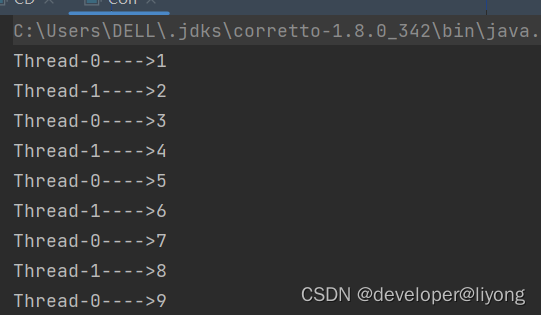



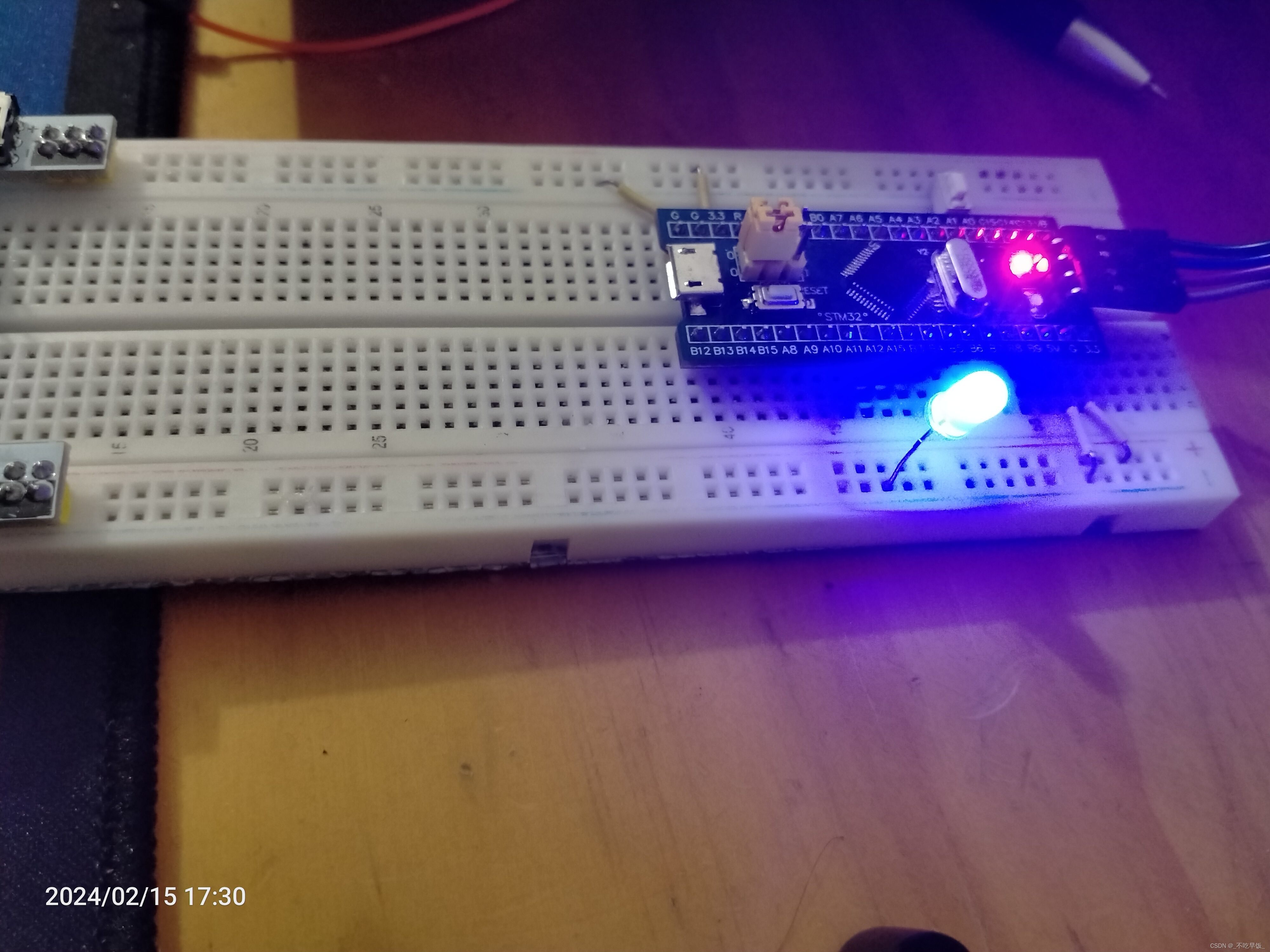


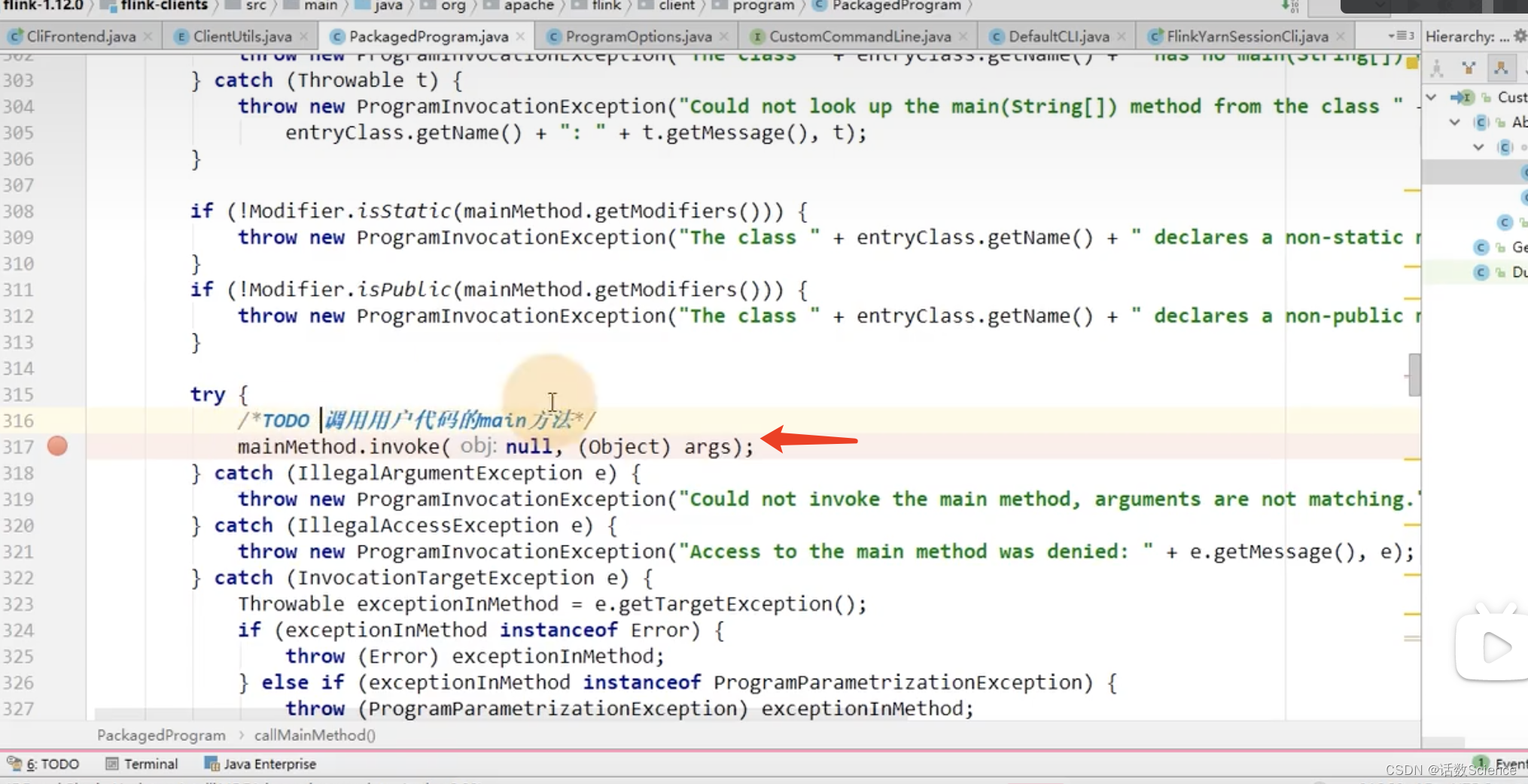
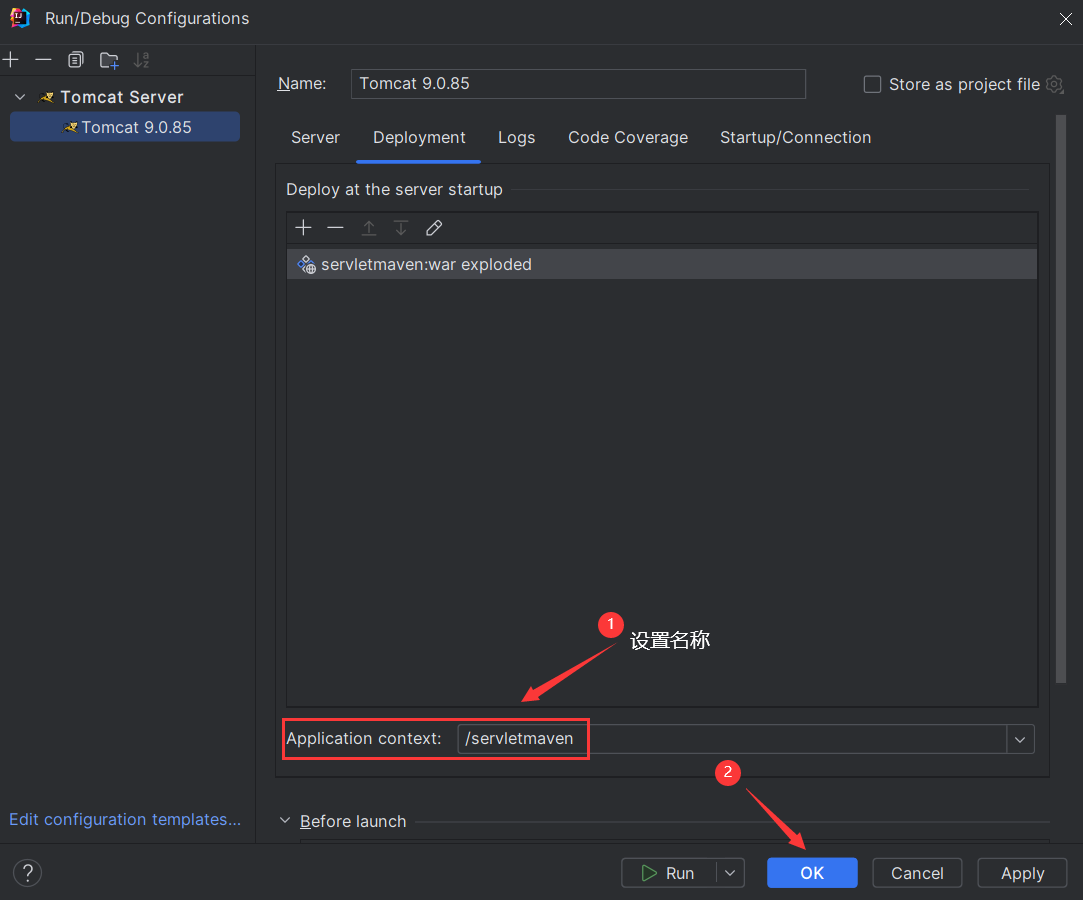


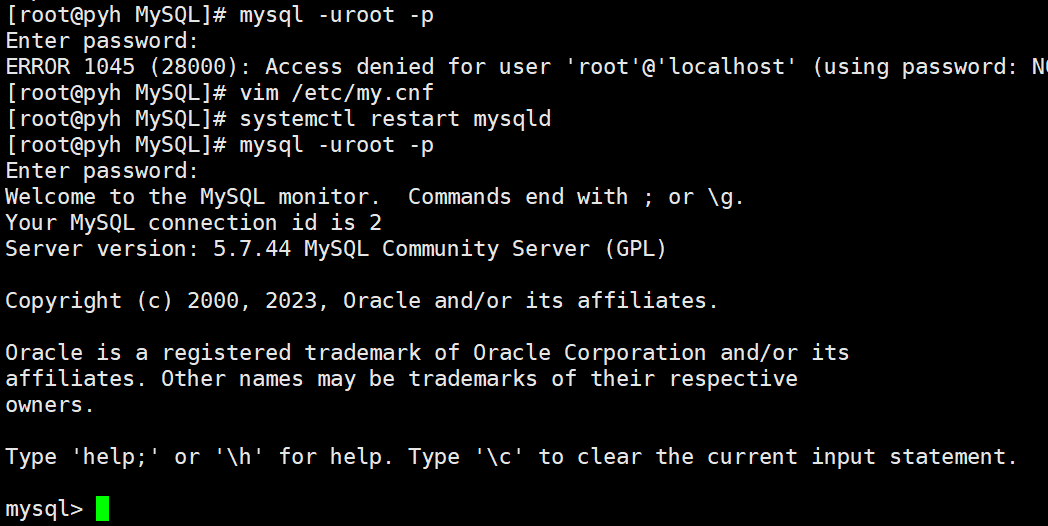
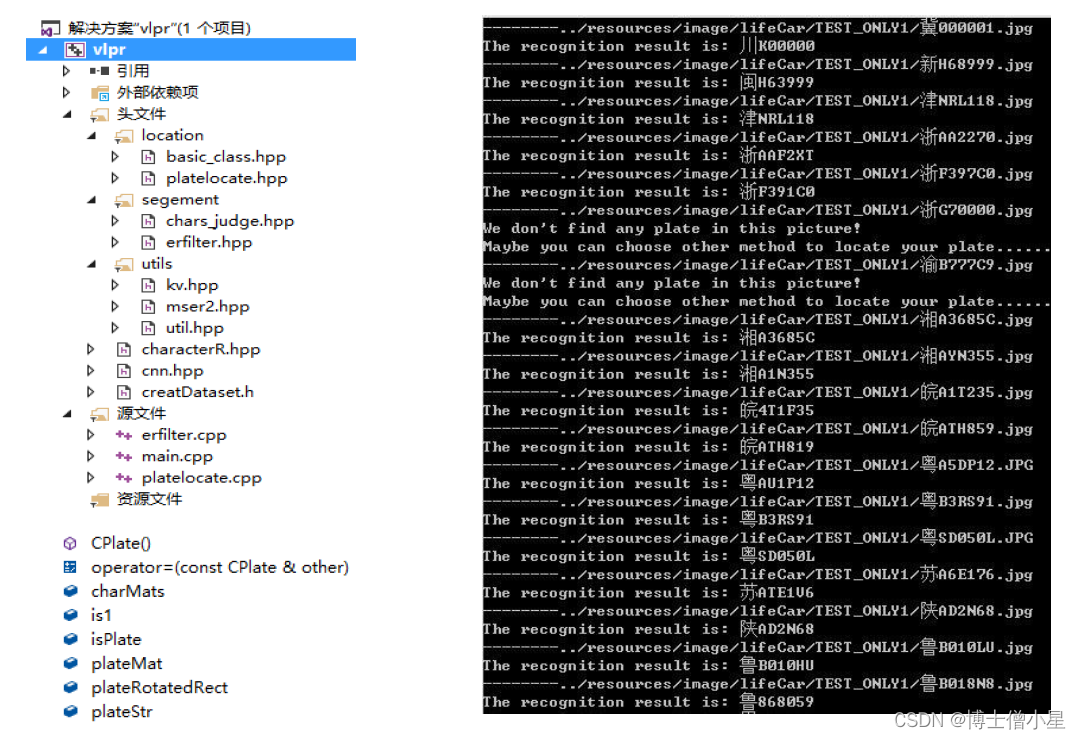
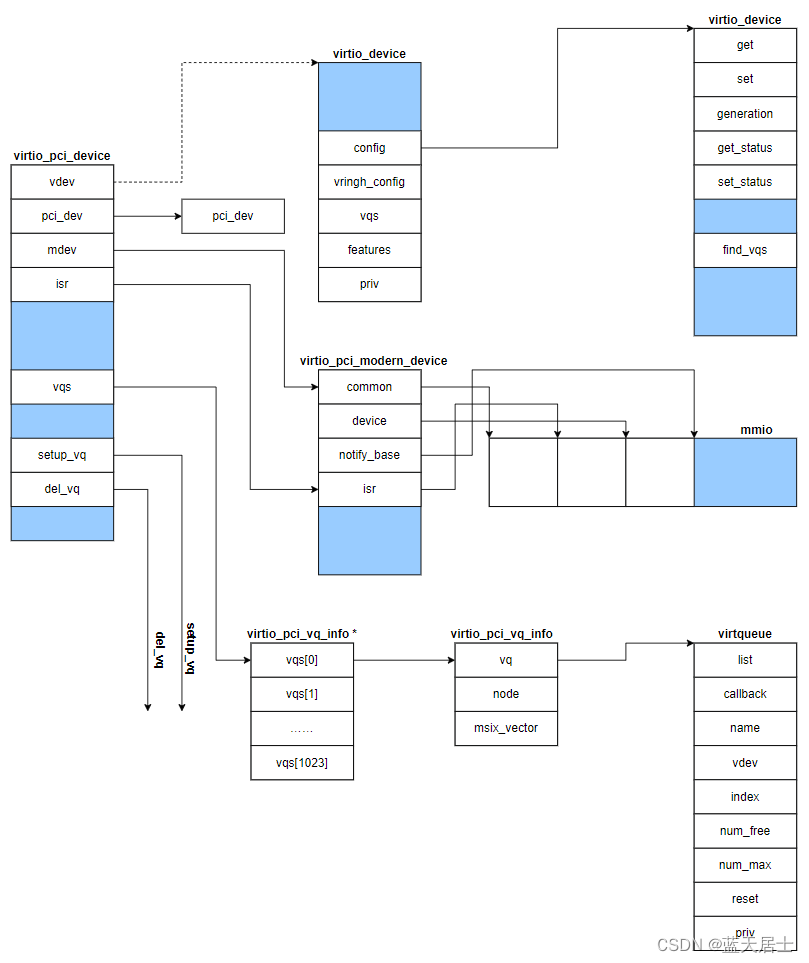
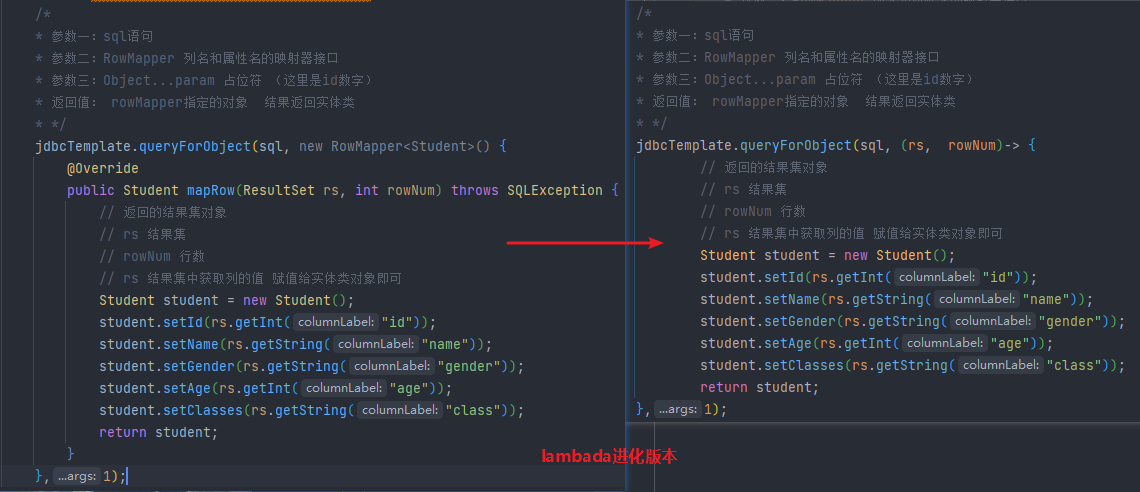

![代码随想录算法训练营第二十三天 | 669. 修剪二叉搜索树,108.将有序数组转换为二叉搜索树,538.把二叉搜索树转换为累加树 [二叉树篇]](https://img-blog.csdnimg.cn/direct/a395825fe2b745fc91499c43d1cb8fda.png)